The U.S. government classifies the Islamic Republic of Iran as the “foremost state sponsor of terrorism,” alleging that Iran provides “a range of support, including financial, training, and equipment, to [terrorist] groups around the world – particularly Hezbollah.” The U.S. has designated Iran as a state sponsor of terrorism since 1984.
What is state-sponsored terrorism?
State-sponsored terrorism is a state’s deliberate use of terrorism or assistance to terrorist organizations as a foreign policy tool against other countries or groups of people. It can refer to either direct attacks by the state or support of terrorist organizations through the provision of weapons, funds, training, and sanctuary.
Overview of State-Sponsored Terrorism by Iran:
Since the Iran Hostage Crisis in 1979, one of the defining hallmarks of the Iranian regime has been its habitual use of terrorism against the United States and its allies throughout the world and its ties to terrorist organizations. In addition to carrying out direct attacks, Iran has committed terrorism by proxy. The U.S. State Department noted in its most recent Country Reports on Terrorism that “Iran continued its terrorist-related activity in 2020, including support for Hezbollah, Palestinian terrorist groups in Gaza, and various terrorist and militant groups in Iraq, Syria, and elsewhere throughout the Middle East.” Iran also has a history of supporting the Taliban in Afghanistan, Al-Qaeda, and militant groups in Bahrain and Saudi Arabia.
As illustrated in the timeline below, attacks by the most violent Iran-backed groups—including Lebanese Hezbollah; Hamas and Palestinian Islamic Jihad in Gaza; Badr Organization, Kataib Hezbollah, Asaib Ahl al-Haq, and other militias in Iraq and Syria—have accelerated in recent years, particularly since Iran reached a nuclear deal with the P5+1 in July 2015. The Islamic Revolutionary Guard Corps (IRGC) also conducts its own operations against U.S. citizens, including current and former government officials; Israeli citizens and Jewish people; and dissidents and journalists worldwide. Rather than fostering moderation, the Joint Comprehensive Plan of Action (JCPOA) has emboldened Iran to escalate its destabilizing activities and enhanced its ability to bankroll terrorism and proxy wars.
Timeline
- 1979
- 1982
- 1983
- 1984
- 1985
- 1987
- 1988
- 1989
- 1991
- 1992
- 1994
- 1996
- 2000
- 2003
- 2005
- 2006
- 2011
- 2012
- 2013
- 2014
- 2015
- 2016
- 2017
- 2018
- 2019
- 2020
- 2021
- 2022
- 2023

Since its founding in 1979, the Iranian regime has employed terrorism as a key instrument to advance its interests and strike at its domestic and foreign enemies. As a result, the U.S. government labels the Islamic Republic of Iran the “most active state sponsor of terrorism.” The U.S. has designated Iran as a state sponsor of terrorism since 1984.

Only months after the Islamic Revolution, a radical group of Iranian students stormed the American Embassy in Tehran, taking 66 Americans hostage, 52 of which were held for 444 days. The hostages were beaten, placed in solitary confinement for extended periods of time, regularly forced to have their hands bound, and "threatened repeatedly with execution." On January 20, 1981, the day of Ronald Reagan’s presidential inauguration, the remaining 52 hostages were released and returned to the U.S.
Spanning a full decade, the Lebanon Hostage Crisis refers to systematic abductions of foreign nationals in Lebanon by the Iranian-backed terrorist group Hezbollah. Of the total 96 foreign nationals abducted, 25 U.S. citizens were kidnapped, making Americans the most targeted national group. A number of hostages died in captivity as a result of inadequate medical care, torture, or execution. During the crisis, some victims spent years in captivity, while others, including CIA Station Chief William Buckley, were tortured and killed. Among those held captive was American University of Beirut President David S. Dodge, who was held for a full year in Lebanon and Iran, and American journalist Terry Anderson, who was abducted and held in captivity for almost seven years.
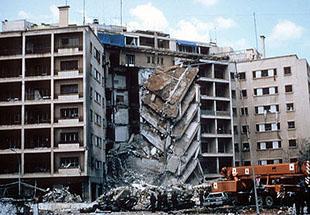
63 people, including 17 Americans, were killed and more than 100 injured when a suicide bomber rammed a truck carrying 2,000 pounds of explosives into the U.S. Embassy in Beirut. The bombing resulted in the killing of "the entire U.S. Central Intelligence Agency Middle East contingent." The attack, directed by Hezbollah and financed by Iran, "initiated the modern era of suicide bombings.”
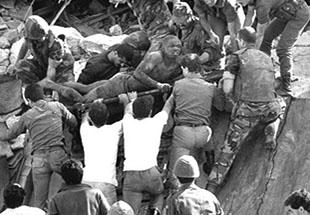
241 U.S. marines were killed and over 100 wounded when an Iranian suicide bomber drove a truck carrying the equivalent of 15,000-21,000 pounds of TNT into the U.S. Marine Barracks at Beirut International Airport. Causing the "largest non-nuclear explosion that had ever been detonated on the face of the Earth," the bombing was the “deadliest terrorist attack on Americans before 9/11.” At the same time, a separate suicide truck bomb destroyed a building housing French soldiers, killing 58 French paratroopers. The Marines residing in the U.S. barracks had been sent to Lebanon “as part of a multinational force to help separate the warring Lebanese factions” in the ongoing civil war.
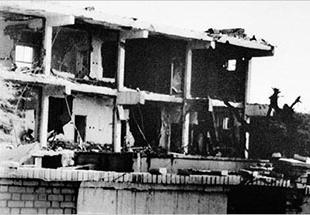
Part of a series of attacks aimed at “six key foreign and Kuwaiti installations,” the bombing of the U.S. embassy in Kuwait left five victims dead and eighty-six injured. Other targets included “the French embassy, the control tower at the airport, the country's main oil refinery, and a residential area for employees of the American corporation Raytheon.” The attack was carried out by "Hezbollah and operatives of the Iranian-backed Iraqi Shiite group Da'wa."
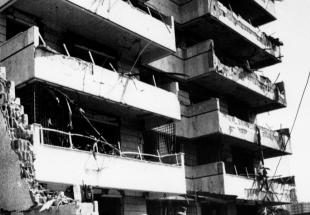
24 people were killed when a van carrying three thousand pounds of explosives detonated outside the U.S. Embassy annex in East Beirut. Among those killed were two Americans: 33-year-old Chief Warrant Officer Kenneth V. Welch and 30-year-old Petty Officer First Class Michael Ray Wagner. The CIA noted at the time that that "an overwhelming body of circumstantial evidence points to Hizballah, operating with Iranian support under the cover name of Islamic Jihad."

On the morning of June 14, 1985, members of Iran-backed Hezbollah hijacked TWA Flight 847 in order to gain leverage in their demands for “the release of Shia prisoners held in Kuwait, Israel, and Spain.” Iran played a central role in both the “supervision and planning of the incident.” The plane, carrying 153 passengers landed in Beirut and then Algiers, where a number of hostages were released. After landing in Beirut for a second time, passenger Robert Dean Stethem, a U.S. navy diver, “was shot and his body dumped on the airport tarmac." Although Israel never admitted to a deal, the remaining 39 TWA hostages were freed June 30, and the release of 766 Shia prisoners detained by Israel began July 1.

The Saudi branch of Hezbollah (Hezbollah al-Hejaz) was founded in May 1987, and shortly thereafter, Iran set about recruiting radicalized Shi’ites in Saudi Arabia’s oil-rich and heavily Shi’a Eastern Province to carry out attacks. With the help of Iran’s Islamic Revolutionary Guard Corps (IRGC) and embedded agents within Saudi petroleum facilities, Hezbollah al-Hejaz embarked upon a series of high-profile attacks targeting Saudi oil interests between August 1987 and March 1988. In August 1987, Hezbollah al-Hejaz bombed a gas facility in Ras al-Juaymah. In March 1988, the organization bombed a petrochemical plant in Jubail and a refinery in Ras Tanura, while a bomb planted in Ras al-Juaymah failed to detonate. After the attacks, Saudi authorities captured three Hezbollah al-Hejaz operatives following a standoff in which several policemen were wounded or killed. The operatives were publicly executed in September 1988.
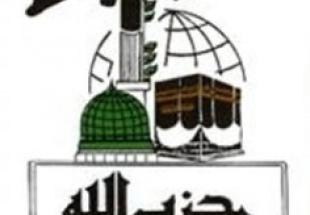
The Saudi branch of Hezbollah (Hezbollah al-Hejaz) vowed retaliation against Saudi officials after three of its operatives were executed in September 1988, and subsequently embarked on an assassination campaign against Saudi diplomats abroad. In October 1988, Hezbollah al-Hejaz murdered the second secretary at the Saudi embassy in Turkey. In December 1988, the second secretary at the Saudi mission in Pakistan survived an assassination attempt by the group. In January, Hezbollah al-Hejaz assassinated the third secretary at the Saudi embassy in Thailand outside his home. In February 1990, the group killed an additional four Saudi diplomats serving in Thailand.
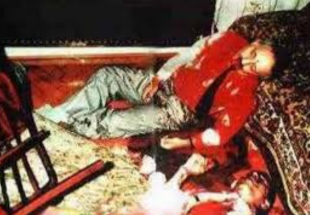
Dr. Abdul-Rahman Ghassemlou, then Secretary-General of Kurdish Democratic Party of Iran (KDPI), was killed with two associates in Vienna, where he was secretly meeting with envoys sent by then Iranian President Akbar Hashemi Rafsanjani.
Dispatched diplomat-terrorists of the Iranian Islamic regime were suspected of direct involvement at the time. Austrian sources have since connected current Iranian President Mahmoud Ahmadinejad to the assassination through weapons sales.
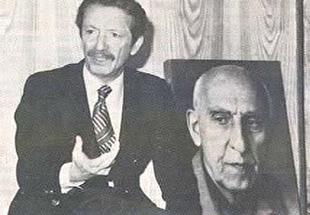
Regime operatives murdered democratic secular politician Shapour Bakhtiar, who was the last Iranian prime minister prior to the Islamic Revolution.
In a botched attempt on Bakhtiar’s life in Paris suburb in 1980, his assailants killed a French policeman and a female neighbor.
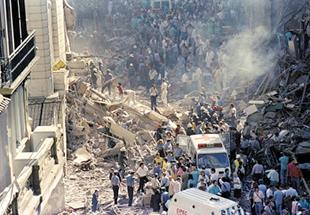
In 1992, Iran’s terrorist proxy Hezbollah perpetrated a suicide truck bomb attack on the Israeli embassy in Argentina, which killed 29 people and injured 242 others, the great majority of which were civilian bystanders in the vicinity of the embassy.

4 Iranian Kurds killed at the Mykonos Café, including the leader of the KDPI, Dr. Mohammad Sadegh (Saeid) Sharafkandi.
German courts linked the Iranian government and Minister of Intelligence Ali Fallahian to the assassination.
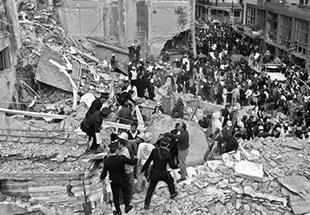
Iran was directly responsible for the 1994 AMIA Jewish community center bombing in Buenos Aires, which killed 85 and injured 300. The AMIA attack remains the deadliest terrorist attack in Argentina’s history. Ahmad Vahidi, the former Iranian Defense Minister and IRGC Commander, is wanted by INTERPOL for his lead role in the bombing. Successive Argentine governments have sought to bring to justice the perpetrators of these unprovoked terrorist acts on Argentine soil. In 2006, an Argentine court “declared former Iranian President Hashemi Rafsanjani and eight others fugitives from justice in Argentina” for their role in the AMIA bombing.
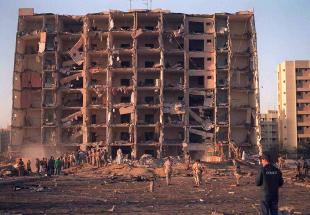
The bombing of Khobar Towers, a U.S. military housing complex in Saudi Arabia, left nineteen Americans dead and 372 injured. The attackers detonated a parked truck laden with the equivalent of 3,000-8,000 pounds of explosives in the Khobar Towers parking lot. The resulting explosion “sheared the face off of Building 131, an eight-story structure which housed about 100 U.S. Air Force personnel.” 14 members of the Iran-backed Saudi branch of Hezbollah have been held responsible for the attack.
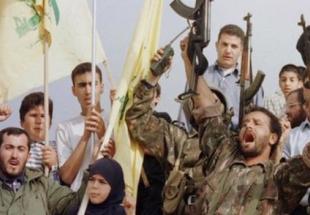
Lebanese Hezbollah forces abducted three Israeli Defense Forces (IDF) soldiers patrolling on the Israeli side of the border with Lebanon. The Hezbollah cell planted a powerful bomb along the border fence which exploded as their vehicle passed by, breaching a gate and severely wounding three IDF soldiers inside the patrol vehicle. The Hezbollah members illegally crossed into Israel and abducted the soldiers, Benny Avraham, Adi Avitan and Omar Souad, and subsequently hid them deep in Lebanese territory. Hezbollah refused to release any information on the soldiers’ conditions during their captivity, but the soldiers were apparently killed during or shortly after their abduction. In 2004, Israel agreed to a prisoner swap in which it released 400 Palestinian prisoners in exchange for the return of the soldiers’ bodies.
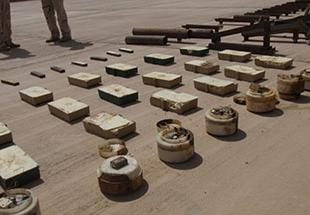
Following the 2003 U.S. invasion of Iraq, Iran undermined U.S. operations by "consistently [supplying] weapons, its own advisors, and Lebanese Hezbollah advisors to multiple residence groups in Iraq, both Sunni and Shia,” which targeted Coalition Forces. For the U.S., “concern [revolved] around Iran’s role in arming and assisting Shiite militias.” In Iraq, the "the top killer of U.S. troops” were IEDs (improvised explosive devices), which were primarily supplied by Iran. In total, Iran’s support for Iraqi insurgents led to the death of thousands of U.S. soldiers in Iraq. In 2010, U.S. ambassador to Iraq James Jeffery stated, "Up to a quarter [4,400] of the American casualties and some of the more horrific incidents in which Americans were kidnapped ... can be traced without doubt to these Iranian groups."
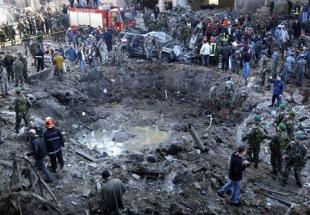
A massive bomb targeting the armed convoy of former Lebanese Prime Minister Rafik Hariri, an outspoken critic of Syria’s military presence in Lebanon, exploded in downtown Beirut, killing Hariri and 22 others, and wounding hundreds more. The United Nations established a Special Tribunal on Lebanon following the attack to determine culpability. In 2011, the tribunal indicted five Hezbollah members including Mustafa Badreddine, a prominent commander linked to the 1983 Marine barracks bombing in Beirut. The alleged Hezbollah conspirators were tried in absentia for the bombing in 2014. The tribunal identified the alleged Hezbollah co-conspirators by "matching disposable cell phones used at the time of the murder with other phones that belonged to the suspects.” According to one of the senior investigators, “Our theory of the case was that Hezbollah pulled the trigger, but could not and would not have done so without the blessing and logistical support from both Syria and Iran."
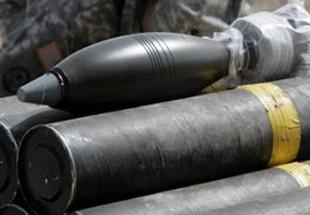
Iranian support for the Taliban against U.S. troops in Afghanistan has been ongoing since at least 2006. According to a RAND report, "although Iran has traditionally backed Tajik and Shi'a groups opposed to the Taliban, its enmity with the United States and tensions over the nuclear program… led it to provide measured support to the Taliban." According to the Treasury Department, “since at least 2006, Iran has arranged frequent shipments of small arms and associated ammunition, rocket propelled grenades, mortar rounds, 107 mm rockets, plastic explosives, and probably man-portable defense systems to the Taliban." Through “Qods force material support,” the report states “we believe Iran is seeking to inflict casualties on U.S. and NATO forces.” In 2010, multiple media sources reported Iran was “paying Taliban fighters $1,000 for each U.S. soldier they kill in Afghanistan.” Over a six-month period in 2010, one “Taliban treasurer” claimed to have collected “more than $77,000 from [an Iranian firm in Kabul]” as payment for killing Americans.
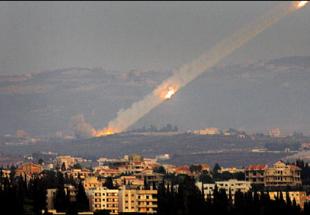
Iran’s terrorist proxy, Hezbollah, infiltrated Israel and conducted a raid in which three Israeli soldiers were killed and two others captured. Five additional IDF soldiers were killed as they pursued the Hezbollah terrorists into Israel. The brazen Hezbollah raid was the precipitating cause of a month-long conflict between Hezbollah and Israel, during which the terrorist group indiscriminately launched thousands of rockets targeting Israeli population centers. Two years after the conflict, Israel released four Hezbollah prisoners and notorious terrorist Samir Kuntar in exchange for the bodies of Ehud Goldwasser and Eldad Regev, the IDF soldiers captured in the 2006 cross-border raid.

U.S. agents disrupted an assassination plot allegedly directed by the Iranian government tatgeting Saudi Arabia’s then-ambassador to Washington, Adel al-Jubeir. The FBI’s investigation into the plot (code named Operation Red Coalition) discovered that Mansoor Arbabsiar, a dual U.S.-Iranian citizen, and Gholam Shakuri, an IRGC-QF commander, were planning to kill al-Jubeir with a bomb at a restaurant. They also planned to subsequently bomb both the Saudi and Israeli embassies in Washington D.C. and were also considering carrying out attacks in Buenos Aires. Arbabsiar was arrested on September 29, 2011 at JFK International Airport, confessing to the plot and receiving a 25-year prison sentence, while Shakuri remains uncaptured.

In New Delhi, India, the wife of the Israeli defense attaché and her driver were injured after a device attached to their car exploded. The Delhi Police concluded that the suspects were members of the IRGC. A similar device was defused in Tbilisi, Georgia after being discovered on the underside of an Israeli diplomat’s car. The following day, three Iranian men accidentally detonated a cache of explosives in Bangkok, Thailand. The explosives were intended to be used to assassinate Israeli diplomats. A multinational investigation has produced the “clearest evidence yet that Iran was involved” in all three plots.
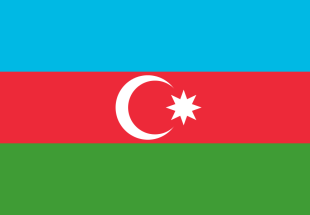
U.S. and Israeli officials were among those targeted for assassination by a group of IRGC-linked terrorists arrested in Baku, Azerbaijan.
According to The Washington Post, “U.S. and Middle Eastern officials now see the attempts as part of a broader campaign by Iran-linked operatives to kill foreign diplomats in at least seven countries over a span of 13 months.”
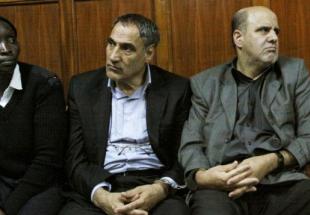
Two Iranian nationals, allegedly members of the IRGC-Quds Force, were arrested by Kenyan security forces on June 19, and subsequently led the authorities to a cache of RDX, a powerful explosive, large enough to topple a tall building. Ahmad Abolfathi Mohammad and Sayed Mansour Mousavi were charged with possession of explosives “in circumstances that indicated they were armed with the intent to commit a felony, namely, acts intended to cause grievous harm.” Kenyan officials believed the Iranians intended to target American, British, Israeli or Saudi Arabian interests within Kenya. The officials also alleged that the advanced explosives and the men’s links to the Quds Force indicated that Iranians at the highest levels of government likely had knowledge of the plot. In May 2013, both men were convicted of plotting attacks against Western targets and sentenced to life in prison.
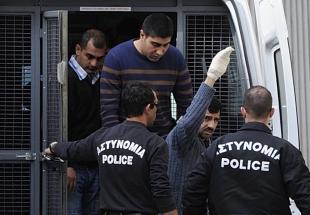
Cypriot authorities arrested a dual Lebanese-Swedish citizen and member of Iran’s terrorist proxy Hezbollah’s military wing for his role surveilling potential targets in a plot to attack Israeli tourists. Hossam Taleb Yaacoub admitted to recording flight arrivals and bus routes of Israeli tourists and to acting as a courier for Hezbollah within the European Union, making usage of his EU citizenship. Yaacoub told Cypriot investigators, “I was just collecting information about the Jews. … This is what my organization is doing, everywhere in the world.” In March 2013, Yaacoub was sentenced to four years in prison. His illicit activities on Hezbollah’s behalf played a role in the EU’s decision to designate Hezbollah’s military wing as a terrorist organization.
A suicide bomber destroyed an Israeli tour bus in Burgas, Bulgaria, killing the bus driver and five Israelis, and wounding more than 30 others.
In an investigation, the Bulgarian government found Hezbollah and its patron Iran responsible for the attack.

Nigerian authorities charged three Lebanese members of the Iranian terrorist proxy Hezbollah with terrorism and weapons smuggling after discovering a large weapons cache in the town of Kano. Among the weapons uncovered were antitank weapons, rocket-propelled guns, and antitank/antipersonnel mines. "The arms and ammunition were targeted at facilities of Israel and Western interest in Nigeria," according to a Nigerian military spokesman.
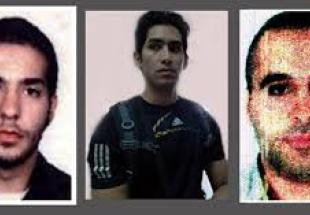
Thai officials arrested a Hezbollah cell consisting of a French-Lebanese national Daoud Farhat and a Lebanese-Filipino national Youssef Ayad planning an attack on Israeli tourists visiting Bangkok for Passover. The attack was supposed to take place on the Khao San road, the city’s main tourist hub popular with young Israeli travelers. The two men were thought to be part of a larger nine-member Hezbollah cell operating in Thailand.
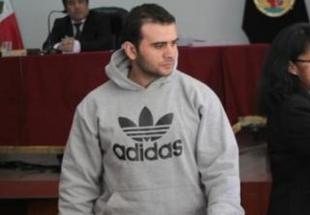
Peruvian anti-terror police arrested a Lebanese citizen accused of being an operative of Iran’s terrorist proxy Hezbollah and plotting attacks on Jewish and Israeli targets. Authorities discovered TNT, detonators, and flammable materials at his residence and found that he had been gathering intelligence on Jewish organizations and locations popular among Israeli hikers.
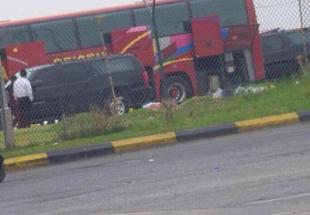
Bahraini officials seized bomb-making equipment being smuggled from Iraq aboard a passenger bus for use in attacks in the island kingdom. During a routine search of the bus, authorities found 140 detonators, 41 electrical circuits, a remote control device, and some cell phones hidden inside electrical appliances. The equipment was found in the bag of a juvenile passenger from Iraq who had been instructed by a wanted terrorist to deliver it to the predominantly Shiite village of Sitra – in northern Bahrain – to be used in terror attacks.
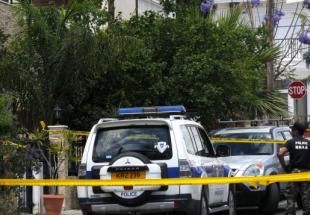
Cypriot authorities arrested a 26 year-old Lebanese-Canadian dual national after finding nearly 8.5 tons of ammonium nitrate, an explosive material, in his basement. According to Cypriot judicial authorities, Hussein Bassam Abdallah was a member of Iranian terrorist proxy Hezbollah’s military wing tasked with safe-keeping the explosive material, which was intended to be used in targeting Israeli interests on the island. Israeli security officials briefed on his arrest said the plot offers “further evidence of deep Iranian involvement in international terrorism. … Hezbollah, the contractor, is funded by Iran, and its operatives are trained by Iranian experts. In this case, like in other cases, the head is in Tehran, the orchestration is Iranian, the funding is Iranian and the one that carries it out is Hezbollah.” On June 29, 2015, Abdallah was sentenced to six years in Cypriot prison.
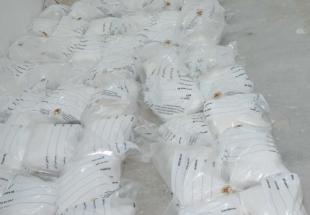
As part of the investigation into the explosives smuggled aboard a passenger bus in March 2015, Bahraini officials discovered a warehouse in the village of Dar Kulaib containing a large quantity of high-quality explosives and bomb-making materials. The warehouse contained 222kg of TNT, some of which was not locally manufactured. The Bahraini investigation alleged that Murtadha Majeed Ramadhan al-Sindi, a Bahraini fugitive in Iran working with the IRGC, and Qassem Abdullah Ali, another Bahraini fugitive in Iran, formed a and recruited a terror cell to attack Bahrain and Saudi Arabia. This included providing military training to cell-members, smuggling explosives, and traveling to Iran and Iraq on explosives training, fire-arms usage, and scuba diving to plant explosives offshore. The training in Iraq was carried out by Kata’ib Hezbollah and the IRGC, who also provided the cell with logistical and financial support.
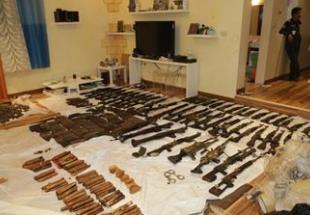
Kuwaiti officials foiled a plot by Hezbollah to carry out attacks in the country, planned by 25 of its own nationals and 1 Iranian. Authorities seized a huge arms cache they say was smuggled from Iraq and hidden underneath houses close to the Kuwaiti-Iraqi border. In Kuwait’s Al-Abdali area, they discovered a total of 42,000 lbs. of ammunition, 144 kg of explosives – including C4 explosives – 68 weapons, and 204 grenades. The cell was charged with plotting with Iran and Hezbollah to destabilize Kuwait’s national security.
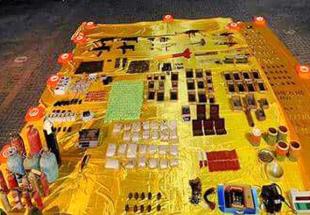
Bahraini security forces discovered a large bomb-making factory in Nuweidrat – a residential district south of the capital Manama – and arrested several suspects linked to the IRGC. Authorities said the facility contained more than 1.5 tons of high-grade explosives, making it one of the biggest finds in the island kingdom. The facility had been adapted to accommodate an elaborate network of hidden underground bunkers and above-ground manufacturing operations.
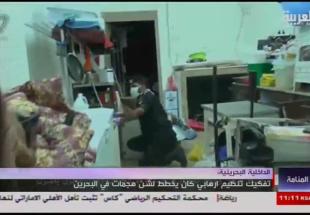
Bahraini security officials arrested a 47-man group believed to be linked to Iran who were planning imminent attacks in the country. Bahrain’s Interior Ministry said a large number of explosives and weapons were found in secret caches in the residential areas of several villages, and several of the cell’s members received training in Iran on using weapons and manufacturing explosives.

Kenyan security forces arrested two Iran-linked Kenyan nationals who admitted to “conspiring to mount terror attacks against Western targets in Kenya.” One of the men, Abubakar Sadiq Louw, 69, was a prominent figure in Nairobi’s Shi’ite community who authorities alleged had links to the IRGC-Quds Force. Louw was said to have recruited his accomplice, Yassin Sambai Juma, 25, and to have facilitated his travel to Iran where he met with a Quds Force contact. Following their arrest, Nairobi’s police chief stated, “We have irrefutable evidence they were recruited into an Iranian spying ring. … The mission of that ring was to mount terror attacks in this city, not only targeting Western interests but targeting our people as well.” The pair reportedly made “a number of trips to Iran in which they met their handlers” and were “given targets and given money.”

Shiite militants believed to be members of Katai’b Hezbollah, an Iranian proxy group in Iraq, kidnapped a party of 29 Qatari falcon-hunters on expedition in the southern Iraqi desert. The Shiite group allegedly transferred the Qataris to Iran, where they were held for over a year, only releasing them in April 2017 in exchange for hundreds of millions of dollars in ransom money. In a press conference that month, Iraqi Prime Minister Haidar al-Abadi revealed that Iraqi officials had seized bags full of cash belonging to Qatari officials that were intended to be delivered to Kata’ib Hezbollah, estimated at $500 million. Without naming the group, al-Abadi said that the country’s national security would have been severely jeopardized had the money reached its intended recipients. However, later reports claimed that a total of $1 billion had already been delivered by the Qataris - $700 million going to Iran, and the remainder to Kata’ib Hezbollah. It is unclear if these were separate payments or not.
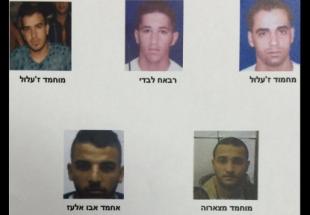
In January 2016, Bahrain caught a terrorist cell backed by the IRGC and Hezbollah which was in the midst of plotting a series of bombings. According to a report by Bahrain’s official news agency, one of the suspects had travelled to Lebanon and met personally with Hezbollah leader Hassan Nasrallah, who gave him $20,000 to aid the cell.
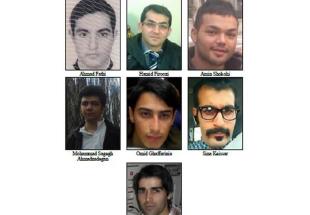
The U.S. Justice Department announced indictments against seven Iranian cyber specialists linked to the Iranian government and Islamic Revolutionary Guard Corps (IRGC) for cyber attacks against U.S. banks and a New York dam. The men were accused of carrying out distributed denial of service attacks–in which they hacked into bank servers and clogged it with data, preventing legitimate traffic–against 46 U.S. financial institutions, and attempting to hack into the control system of a New York dam between 2011 and 2013.

Bahraini authorities arrested a five-member terror cell linked to the IRGC and Kata’ib Hezbollah. They said the suspects had received extensive military training in bomb-making and carrying out attacks at both entities’ training camps. Authorities discovered and seized an arms cache including explosives, weapons, communications devices, and detonators. They also found daggers, knives, and various currencies.
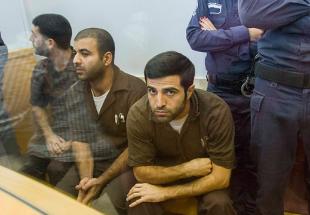
Israeli security forces arrested a cell of seven residents of Ghajar, on the border with Lebanon, allegedly planning to carry out mass casualty attacks in Israel on orders from Hezbollah. In May of 2016, two of the conspirators drove to the Israeli-Lebanese border fence near Ghajar and met with Hezbollah operatives, where they transferred encrypted files to the militants and received a bag of improvised explosive devices and $5,000 in exchange. According to Shin Bet, they were due to take a second delivery of explosives in August of that year. Hezbollah instructed the conspirators to plant the bombs at important centers and major hitchhiking stops in the northern Israeli city of Haifa. After failing to do so due to high security in the city, they decided to plant the explosives at the Golani Junction in the lower Galilee, a major gathering point for Israeli soldiers. The plot was the latest in a string of attempts by the Shiite organization to carry out attacks in Israel. According to Israel’s Shin Bet security service, “The Hezbollah organization has recently made it a priority to try to spark terror acts, doing so from far away while attempting to not clearly express its involvement.”
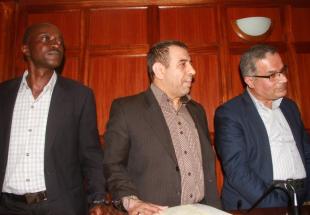
A Nairobi court charged two Iranian men, Sayed Nasrollah Ebrahimi and Abdolhosein Gholi Safaee, and their Kenyan driver, with “facilitation of a terrorist attack” after authorities caught them filming the Israeli embassy with their mobile phones. The surveillance was conducted from a diplomatic vehicle that belonged to the Iranian embassy, indicating state involvement in the plot. An Iranian Foreign Ministry spokesman claimed the two men were “official lawyers of the justice ministry… who traveled to Nairobi on behalf of the families of two Iranian prisoners in Kenya for a legal follow-up.” Kenya subsequently reached an agreement with Iran to deport the Iranians, but drop criminal charges against them.

German authorities indicted a Pakistani for conducting espionage on behalf of Iran’s state intelligence services, which intended to attack pro-Israel organizations and representatives within Germany. German media reported that the Pakistani’s espionage activities were part of a larger Iranian operation to target pro-Israel groups throughout Europe.
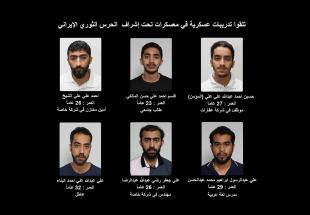
A 14 member cell linked to Iran carried out a bomb attack on a bus carrying Bahraini police officers, wounding five. They were arrested the next month by Bahraini authorities. According to Bahraini officials, six of the arrestees received military training in IRGC camps, five in Kata’ib Hezbollah facilities, and three in Bahrain. Weapons, locally-made explosives and communications equipment was seized from the homes of the suspects. They cell was also suspected of plotting attacks against senior Bahraini officials.
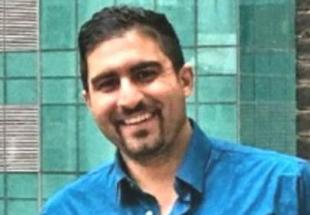
U.S. authorities arrested a pair of operatives belonging to the Iranian terrorist proxy, Hezbollah, and charged them with plotting attacks against American and Israeli targets in New York and Panama. Both men had traveled to Lebanon for weapons and bomb-making training. Ali Kourani of the Bronx, NY, was accused of scouting American and Israeli military and law enforcement targets in New York, as well as airports, while Samer El Debek of Dearborn, Michigan was accused of scouting the U.S. and Israeli Embassies in Panama, as well as the Panama Canal, for a potential attack during a 2012 visit. According to the U.S. Department of Justice, Samer El Debek “received extensive training as a bomb-maker, and has a high degree of technical sophistication in the area.”

Saudi naval forces intercepted three Iranian boats flying red and white flags that entered Saudi Arabia’s national waters. Saudi forces noticed the boats speeding towards Saudi Arabia’s offshore Marjan oil field’s installations, and began firing unheeded warning shots in their direction. Two of the boats succeeded in fleeing, but the Saudi navy managed to capture one of the boats, carrying three IRGC members and laden with arms intended for “subversive activities.” Iran has denied any wrongdoing, claiming the boats were actually fishing vessels which drifted off-course.

German authorities announce they are conducting searches throughout Germany, raiding the homes of ten suspected Iranian spies believed to be members of the IRGC’s Quds Force who were monitoring Israeli and Jewish targets in the country.

Bahrain announces that it has arrested 116 members of an Iranian-backed terrorist militia, which authorities suspect of plotting attacks on government officials and the security services. Reports indicate that 48 of the 116 arrested agents received training at IRGC camps in Iran, Lebanon, and Iraq, and that government officials uncovered manufacturing and storage sites for explosives.
Albanian authorities arrested two suspected Iranian operatives who were caught in the act of surveilling a site where exiled Iranian opposition figures from the Mujahideen-e Khalq group were set to hold a Persian Nowruz celebration. In December 2018, Albania expelled Iran’s ambassador and another Iranian diplomat, reportedly in connection to the aborted terrorist plot.

The Trump Administration announces the indictment of and sanctions on the Mabna Institute, characterizing it as engaging in “one of the largest state-sponsored hacking campaigns” ever prosecuted by the U.S. government. According to U.S. officials, the Mabna Institute conducted “massive, coordinated intrusions,” targeting at least 144 U.S. universities and 176 foreign universities in 21 countries, stealing 31 terabytes of data and intellectual property in order to assist the IRGC in weapons research, among other areas.
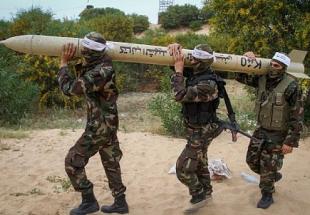
The Israeli Defense Forces announces that Hamas is launching mortars and rockets made in Iran into Israel.
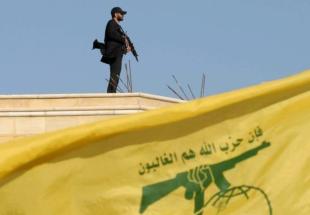
Lebanese news reports indicate that Israel has sent the U.N. Security Council a letter, outlining its concerns over Hamas and Hezbollah working together to establish missile factories and training camps for thousands of Palestinian fighters in southern Lebanon.
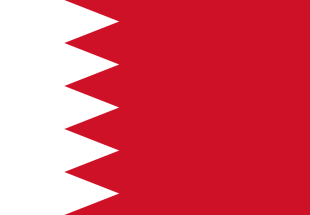
The U.S. Department of State designates the Bahrain-based al-Ashtar Brigades (AAB) as a Foreign Terrorist Organization. As a part of the rationale for the listing, U.S. government cites AAB as formally adopting the ‘branding’ of the IRGC and pledging its loyalty to Iran in January 2018 and Iran having supplied AAB with weapons and explosives, training its members, and offering safe harbor to AAB operatives seeking to escape Bahraini justice.

German authorities charge Assadollah Assadi, an Iranian diplomat in Vienna, with conspiracy to commit murder after officials thwarted his plot to contract a couple from Belgium to bomb an annual meeting of an Iranian opposition group outside Paris. Assadi allegedly provided the couple with 500 grams of TATP to use against the gathering, at which former U.S. officials were due to participate.
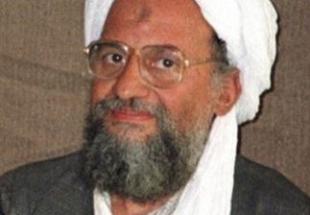
A United Nations report finds that “Al-Qaida leaders in the Islamic Republic of Iran have grown more prominent, working with A[y]man al-Zawahiri and projecting his authority more effectively than he could previously.” That same panel highlights Iran-based figures have “influenced events in the Syrian Arab Republic, countering the authority of Abu Mohammed al-Jawlani and causing formations, breakaways and mergers of various Al Qaeda-aligned groups in Idlib.”

The U.S. government charges two Iranians, Ahmadreza Doostar and Majid Ghorbani, with conducting surveillance on Israeli and Jewish targets in the United States, specifically the Hillel Center and Rohr Chabad Center in Chicago. The operatives are also implicated in infiltrating an Iranian dissident organization in the United States.

A Fox News report uncovers two unusual Qeshm Fars Air flights from Tehran to Beirut suspected of arms smuggling. It cites Western intelligence sources saying at least one of the flights were carrying “components for manufacturing precise weapons in Iranian factories inside Lebanon.”

The U.S. Department of State’s latest Country Reports on Terrorism accuses Iran of harboring Al Qaeda “facilitation bases.” The report says, “Iran has allowed AQ facilitators to operate a core facilitation pipeline through Iran since at least 2009, enabling AQ to move funds and fighters to South Asia and Syria.”

French authorities detain three people and seize weapons after raids on a dozen homes and the headquarters of a leading Shiite Islamic organization, Zahra Centre, which was founded in 2009 by Yahia Gousami. Gousami has spoken in favor of Hezbollah and Iran’s Supreme Leader Ayatollah Ali Khamenei.

The Czech Security Intelligence Service (BIS) uncovers a Hezbollah hacking scheme in which operatives connected to the organization posed as attractive girls on Facebook, luring unsuspecting users to install a ‘more private and secure application’ on their mobile devices, giving Hezbollah access to the contents of their phones.

A report to the U.N. Security Council indicates that Al-Shabaab, a terrorist group in Somalia with links to Al Qaeda, is using Iran as its main transit point for illegal charcoal exports from Somalia.
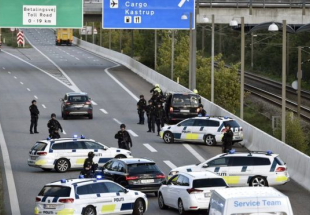
Denmark’s primary intelligence agency announced the arrest of a Norwegian man of Iranian descent for allegedly taking part in an Iranian intelligence service’s plot to assassinate an Iranian Arab separatist activist on Danish soil. On September 28, Danish police thwarted Iran’s plans through a major security operation carried out with Sweden. Authorities shut off access to and from the island that Denmark’s capital, Copenhagen, is situated on for several hours to launch a manhunt for the suspect, who had been seen photographing the homes of members of an Iranian Arab separatist movement residing in Denmark. Denmark recalled its ambassador to Iran in response to the incident.

The U.S. Treasury Department imposes sanctions on Hezbollah leader Hassan Nasrallah’s son, Jawad Nasrallah; on four men who head Hezbollah’s Iraqi operations; and on the al-Mujahidin Brigades, a Hezbollah-linked Palestinian militia.

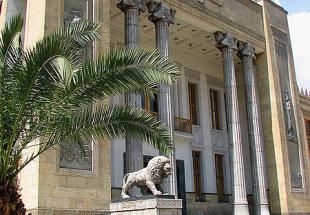
Leading German telecommunications firm Deutsche Telekom reportedly discontinues telephone and internet service to Iran’s Bank Melli, which the U.S. has sanctioned for financing terror.

Lebanese businessman Mohamad Noureddine, whom the U.S. has sanctioned for ties to Hezbollah, is sentenced in France to seven years’ imprisonment for laundering Colombian drug money to buy weapons for Hezbollah in Syria.
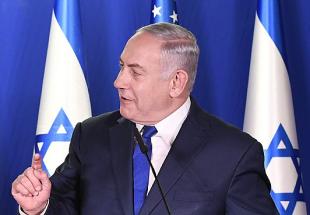
The Israeli government reveals that Hezbollah is building several tunnels from Lebanon into Israel for military use. Israel launches Operation Northern Shield to destroy the tunnels.

Iranian Supreme Leader Ali Khamenei and Foreign Minister Mohammad Javad Zarif meet in Tehran with Ziad al-Nakhala, head of the Iranian-sponsored terrorist organization Palestinian Islamic Jihad.
In April 2019, a Bahraini court sentenced to prison 139 Bahrainis, of whom 69 received life sentences (25 years), on terrorism 113 charges; the court also ordered the revocation of their citizenships. The GOB accused the individuals of forming an organization it referred to as “Bahraini Hizballah” with the intention of carrying out attacks in Bahrain.
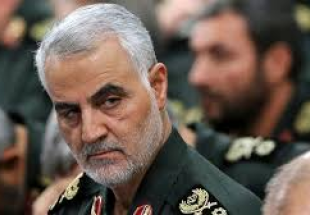
Intelligence indicates that Iran has given its proxies the go-ahead to target U.S. military personnel and assets in the Middle East in response to the U.S. designation of the Islamic Revolutionary Guard Corps (IRGC) as a foreign terrorist organization and the revocation of waivers for buyers of Iranian petroleum exports. It is later reported that IRGC Quds Force commander Qassem Soleimani summoned Iran-backed militias in Iraq and told them to “prepare for proxy war.” The reports precede an uptick in Iranian terror activities and regional destabilization over a span of several months.

Following reports that Iran and its proxies could target maritime traffic, four tankers off the coast of the United Arab Emirates suffer damage in apparent sabotage attacks. The tankers—two Saudi, one Emirati, and one Norwegian— were apparently struck by explosive charges. The U.S. claims to have forensic evidence tying Iran or its proxies to the attacks.
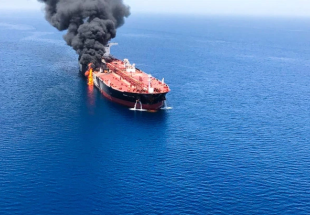
A Japanese and Norwegian oil tanker were attacked in the Gulf of Oman within 45 minutes of each other. According to U.S. Secretary of State Mike Pompeo, Iran was the likely culprit based on “intelligence, the weapons used, the level of expertise needed to execute the operation, recent similar Iranian attacks on shipping, and the fact that no proxy group operating in the area has the resources and proficiency to act with such a high degree of sophistication.”
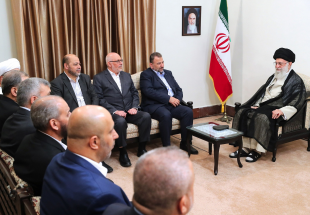
Supreme Leader Ali Khamenei hosted a delegation of the Palestinian terrorist group Hamas in Tehran and reaffirmed Iran’s support for the group. Khamenei called upon the group to use its “precision missiles” to resist the Trump administration’s Middle East peace plan. Several weeks after the meeting, Israeli media reported that Iran had upped its annual support for Hamas from $100 million to $360 million.

Over a span of several weeks, Bahraini authorities identified hacker intrusions into the country’s Electricity and Water Authority, Aluminum Bahrain, National Security Agency, Ministry of Interior, and first deputy prime minister’s office computers. Bahraini authorities suspect Iranian involvement in the cyber attacks, which briefly granted the hackers command and control access over critical infrastructure.
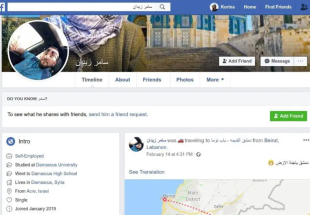
Israel’s Shin Bet intelligence service announced it had broken up an Iranian espionage network’s effort to use social media to recruit West Bank and Gaza Palestinian operatives “for the benefit of Iranian intelligence.” The spy network was based in Syria under Iranian guidance and used fictitious profiles to establish contacts in the Palestinian territories. Iran reportedly sought intelligence on sensitive Israeli military and security sites for use in potential future terrorist attacks.
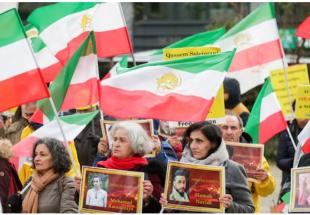
Albanian police discovered an Iranian paramilitary network that allegedly planned attacks in Albania against exiled members of an Iranian group seeking to overthrow the government in Tehran. Police chief Ardi Veliu said the foreign wing of Iran’s Revolutionary Guard operated an “active terrorist cell” targeting Mujahedin-e Khalq, or MEK, group members in Albania. He did not say what the alleged plot involved, or whether any arrests were made. A police statement alleged that two Iranian top security officials led the cell from Tehran. It also said the network was allegedly linked with organized crime groups in Turkey and used a former MEK member to collect information in Albania.
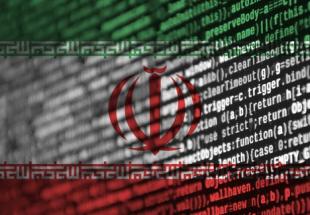
Russian hackers used Iranian cyber tools and digital infrastructure to launch attacks on government and industry groups in dozens of countries, national security officials from the U.S. and the United Kingdom. The Turla group, which is widely believed to be Russian in origin, used two Iranian hacking tools—Nautilus and Neuron—to target military, government, academic and scientific organizations in at least 35 different countries, according to a joint advisory released by the National Security Agency and the U.K.’s National Cyber Security Centre. So far, victims have largely been concentrated in the Middle East, officials said. While authorities had previously flagged Turla’s use of the tools, this latest advisory offers new details on their origin and the extent of their damage. The disclosure paints a picture of Russian hackers piggy-backing off the work of Iranian rivals to advance their own agenda.

Swedish authorities charged a man with spying on Iran's behalf for several years. The man, a 46-year-old Swedish-Iraqi national, is suspected of gathering information on members of the Ahvazi Arab exile community for a four-year period between April 2015 and February 2019 when he was arrested. The Ahvazi are an Arab ethnic minority living in the southwest Iranian province of Khusestan. The minority group faces discrimination and persecution by authorities there, according to Amnesty International. Figures for the number of Ahvazi living in Sweden are not available.
Two men have pleaded guilty to acting as agents of Iran and spying on American citizens who oppose the Tehran regime and are part of the dissident group Mujahedin-e Khalq (MEK). Dual citizen Ahmadreza Mohammadi-Doostdar, 39, admitted on Oct. 8 to one count of acting as an agent of Iran and one count of conspiring against the statute that requires notifying the Attorney General when acting as an agent of a foreign power. He is scheduled to be sentenced Dec. 17 and faces up to five years in prison for the conspiracy charge and 10 years for acting as a foreign agent. Majid Ghorbani, 60, an Iranian citizen who lives in California, pleaded guilty on Monday to one count of violating the International Emergency Economic Powers Act and Iranian Transactions and Sanctions Regulations, which carries a maximum sentence of 20 years. He is due to be sentenced Jan. 15. Prosecutors said Doostdar traveled to the United States in 2017 to give Ghorbani instructions on surveilling American citizens who are part of MEK, the DOJ said.
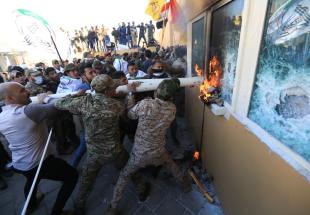
Iran-backed operatives stormed the U.S. Embassy in Iraq, setting fires inside the compound and chanting “Death to America” after the U.S. government struck Iraqi Shiite militia positions following a strike on a military base which killed an American contractor. The militants did not enter the embassy buildings but defaced the property with graffiti. Inside the protest crowd outside the embassy were the Iranian regime’s point-men in Baghdad—founder of the Badr Organization Hadi al-Amiri, former deputy head of the Popular Mobilization Forces (PMF) Abu Mahdi al-Muhandis, and chairman of the PMF Falih al-Fayad.
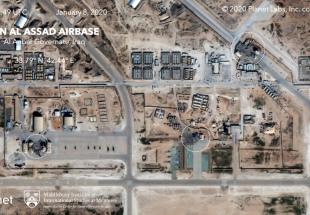
In response to the U.S. strike which killed former head of Iran’s Islamic Revolutionary Guard Corps (IRGC) Quds Force Qassem Soleimani, Iran’s IRGC launched a ballistic missile attack targeting two Iraqi military bases housing U.S. troops. The U.S. government previously determined that Iran—through Qassem Soleimani’s proxy network—was responsible for the deaths of at least 608 American troops in Iraq from 2003-11, and Secretary of State Mike Pompeo claimed that Soleimani posed an imminent threat to U.S. interests in the region. On Iran’s strike, chairman of the U.S. Joint Chiefs of Staff Mark Milley said, “The points of impact were close enough to personnel and equipment and so on and so forth, I believe, based on what I saw and what I know, is that they were intended to cause structural damage, destroy vehicles and equipment and aircraft, and to kill personnel.”
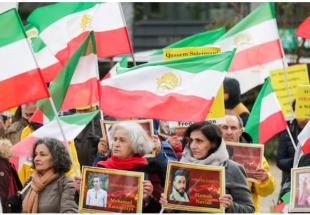
Two men have been sentenced to prison on charges in connection with working on behalf of the government of Iran to monitor a Jewish center in Chicago and Americans who are members of an exiled Iranian opposition group. Ahmadreza Mohammadi-Doostdar, 39, a dual Iranian-U.S. citizen, was sentenced to 38 months in prison on Wednesday by U.S. District Judge Paul L. Friedman in Washington after pleading guilty Oct. 8 to one count of conspiracy and one count of acting as an undeclared agent of the Iranian government. Majid Ghorbani, 60, an Iranian citizen and U.S. permanent resident living in Costa Mesa, Calif., was sentenced to 30 months in prison by Friedman on one count of violating U.S. sanctions by giving photographs to Doostdar that he knew Doostdar would take to Iran, according to court records.
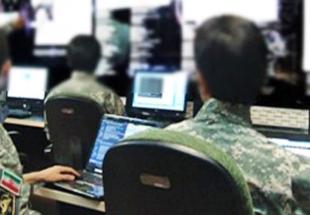
Israel’s Channel 12 reported that cyber-attacks originating from Iran were among the 800 distinct cyber-attacks on Israel's Ben Gurion Airport and planes of world leaders arriving in Israel to attend Yad Vashem Holocaust Memorial on 23 January. According to The Times of Israel on Sunday Channel 12 cited officials from the Airports Authority Cyber Division in a report that said last week, when world leaders including U.S. Vice President Mike Pence and Russian President Vladimir Putin were arriving in Israel to attend the memorial, more than 800 cyber-attacks targeted Israel's international airport and the planes landing there. Channel 12, also known as Keshet 12, is a free-to-air television owned by a media group of the same name. The report said the attacks originated in Iran, China, North Korea, Russia and Poland but since preparations had been made ahead of the momentous event for Israel, the threats were neutralized by Israel's cyber defense, Hercules.

Facebook has removed two separate networks of fake accounts originating in Iran and Russia, for "engaging in foreign or government interference". The Russian operation, which Facebook linked to the country's military intelligence services, focused primarily on Ukraine and neighbouring countries. The small Iranian operation used accounts and personas on Facebook and Instagram to post content about US politics and the 2020 presidential election.
Iranian-backed militia forces are believed to have launched a Katyusha rocket salvo targeting U.S. and coalition troops stationed at Camp Taji, 17 miles north of Baghdad. Two U.S. soldiers and one British soldier were killed in the attack, and an additional twelve soldiers were injured.
The United States believes Iran’s Ministry of Intelligence and Security was directly involved in the killing of an Iranian dissident last November in Turkey, a senior administration official told Reuters on Wednesday. Masoud Molavi Vardanjani was shot dead on an Istanbul street on Nov. 14, 2019. Citing Turkish officials, Reuters last week reported that two intelligence officers in Iran’s consulate in Istanbul had instigated his killing. “Given Iran’s history of targeted assassinations of Iranian dissidents and the methods used in Turkey, the United States government believes that Iran’s Ministry of Intelligence and Security (MOIS) was directly involved in Vardanjani’s killing,” a senior administration official told Reuters.
Hackers working in the interests of the Iranian government have attempted to break into the personal email accounts of staff at the World Health Organization during the coronavirus outbreak, four people with knowledge of the matter told Reuters. It is not clear if any accounts were compromised, but the attacks show how the WHO and other organizations at the center of a global effort to contain the coronavirus have come under a sustained digital bombardment by hackers seeking information about the outbreak. Reuters reported in March that hacking attempts against the United Nations health agency and its partners had more than doubled since the beginning of the coronavirus crisis, which has now killed more than 40,000 worldwide. The latest effort has been ongoing since March 2 and attempted to steal passwords from WHO staff by sending malicious messages designed to mimic Google web services to their personal email accounts, a common hacking technique known as “phishing,” according to four people briefed on the attacks. Reuters confirmed their findings by reviewing a string of malicious websites and other forensic data.
Hackers linked to Iran have targeted staff at U.S. drugmaker Gilead Sciences Inc in recent weeks, according to publicly-available web archives reviewed by Reuters and three cybersecurity researchers, as the company races to deploy a treatment for the COVID-19 virus. In one case, a fake email login page designed to steal passwords was sent in April to a top Gilead executive involved in legal and corporate affairs, according to an archived version on a website used to scan for malicious web addresses. Reuters was not able to determine whether the attack was successful. Ohad Zaidenberg, lead intelligence researcher at Israeli cybersecurity firm ClearSky, who closely tracks Iranian hacking activity and has investigated the attacks, said the attempt was part of an effort by an Iranian group to compromise email accounts of staff at the company using messages that impersonated journalists.
Iran is being linked to an attempted cyberattack last month that authorities believe was aimed at disrupting water supplies in at least two locations in Israel as that country was seeking to contain a covid-19 outbreak, according to foreign intelligence officials familiar with the matter. The incident, which occurred on April 24 and 25, was quickly detected and thwarted before it could cause damage. But Israeli officials and analysts fear that it could signal a further escalation in hostilities between the two countries and that Iran is getting bolder in its efforts to sabotage key systems. “Cyberattacks that intentionally damage critical infrastructure shouldn’t be condoned,” said a senior Trump administration official, who declined to discuss any specific incident and who, like others, spoke on the condition of anonymity because of the topic’s sensitivity. “We think they’re very destabilizing.”

Iran has been accused of using a “sophisticated state-sponsored program” of cyber disinformation to identify and arrest supporters of a London-based Persian-language news outlet. Iran International has been targeted by cybercriminals, thought to be working for the Islamic Revolutionary Guard Corps, who have made replicas of the channel’s social media accounts and their most popular reporters. Mahmood Enayat, general manager at Iran International, said this is an attempt to identify and arrest the channel’s supporters in the country.
Iran tried to increase chlorine levels in the water flowing to residential areas during April’s cyberattack against Israel’s water systems, a Western intelligence official has told the Financial Times. The official told the British newspaper in a report published Monday that hundreds of people would have been at risk of getting sick and that the attack was close to being successful. The head of Israel’s National Cyber Directorate hinted last week that the attack may have aimed to mix chlorine or other chemicals into the water supply.

The Microsoft Threat Protection Intelligence Team has identified a chain of attacks on its cloud service in a post published on June 18. According to Microsoft the group identified as HOLMIUM” has been performing espionage and destructive attacks targeting aerospace, defense, chemical, mining, and petrochemical-mining industries. Based on previous research by the Fireye the group has been linked to Iran and the Iranian Cyber Army. The attack consisted of sophisticated phishing emails giving the target an impression that the message was legitimate.
A court in Denmark sentenced a 40-year-old Norwegian man of Iranian descent to seven years in prison after he was found guilty of spying for Iran and being accessory to attempts to commit murder on Danish soil. The man, who was not identified by the court, “collected information about an exiled Iranian in Denmark” during the period of Sept. 25-27, 2018. The Roskilde city court said it was “proven” that the information was handed over to a person working for an unnamed Iranian intelligence service. It added that online chats between the defendant and the person working for the Iranian intelligence service “weighed in” as evidence.
Israel has reportedly thwarted a terrorist plot to kidnap of one of its soldiers, a plan its security services say was masterminded by Iran and Lebanese Shiite militia Hezbollah. The cell was intercepted and 10 members were arrested, the Shin Bet domestic security agency said. It said it believed the plot was meant to obtain leverage for the release of jailed Palestinians. The Shin Bet said the Popular Front for the Liberation of Palestine, or PFLP, was to carry out the plot in the occupied West Bank.
Israeli defense officials claimed that it is likely that Iran, rather than Hezbollah, was behind the local cell that attempted to plant explosive devices along the border between Israel and Syria on the Golan Heights Sunday night. In a statement issued Monday by Defense Minister Benny Gantz, he initially said Hezbollah was responsible for the incident, but a correction that his office sent out moments later omitted any reference to the Lebanese group, and only referred to “terrorists.” Iran has used other similar local groups and Shi’ite militia members, who were sent to Syria to aid the Assad regime in the civil war, for similar purposes in the past. If it were indeed an Iranian-backed unit behind the incident, then it was probably a response to a series of recent airstrikes against Iranian targets in Syria attributed to Israel.
Prosecutors say one of the three accused, 34-year-old Said Pourkarim Arabi, is a member of the Iranian Revolutionary Guard Corps, an elite Iranian security force that is designated by the United States as a terrorist group. Another is the head of a hacking collective called the Iranian Dark Coders Team, according to the indictment. Arabi and the other two people are accused of using social engineering, rather than sophisticated hacking techniques, to steal sensitive information. Pretending to be employees at the companies, they would entice real staffers or associates to click links that would give the hackers access to private files.
Saudi security forces arrested 10 people on Sept. 23, including three the kingdom said had received military training and instruction in making bombs in late 2017 at sites in Iran belonging to the Guards, the Saudi national security agency said late Monday. It didn’t identify the suspects, citing continuing investigations. The agency, known as the State Security Presidency, said it had seized nine improvised explosive devices and more than five kilograms of gunpowder, along with fuses, chemicals and electronics used in bomb-making. Photographs published in Saudi media showed a cache of arms including assault rifles, scopes and thousands of rounds of ammunition as well as military uniforms that had been confiscated at a house and a farm being used as storage sites.
In a statement released late on Wednesday, the Justice Department said it had taken control of 92 domains used by the IRGC to pose as independent media outlets targeting audiences in the United States, Europe, Middle East and South East Asia. “Today we are 92 domains closer to shutting down Iran’s worldwide disinformation campaign,” said U.S. Attorney David Anderson. “Iran cannot be allowed to hide behind fake news sites."
The US Department of the Treasury said it designated Iran’s elite Islamic Revolutionary Guard Corps (IRGC), the IRGC’s Quds Force, and the Bayan Rasaneh Gostar Institute “for having directly or indirectly engaged in, sponsored, concealed, or otherwise been complicit in foreign interference” in the November 3 election. It also designated the Iranian Islamic Radio and Television Union and International Union of Virtual Media “for being owned or controlled by” the IRGC’s Quds Force, the department said. “The Iranian regime uses false narratives and other misleading content to attempt to influence U.S. elections,” Steven Mnuchin, the US treasury secretary, said in the statement.
The attendees include former ambassadors and other senior policy experts, with Microsoft suggesting that the perpetrators have engaged in the "attacks for intelligence collection purposes." Known as Phosphorus, the group behind the attacks has suspected links to the Iranian government. It sent fake invitation emails to around 100 potential attendees of the Munich Security Conference and the Think 20 (T20) Summit in Saudi Arabia. According to Microsoft’s Corporate VP of Customer Security and Trust, Tom Burt, the "emails use near-perfect English and were sent to former government officials, policy experts, academics and leaders from non-governmental organizations."
actions follow the seizure of 92 Iranian domains in October, part of the U.S. government’s ongoing efforts to combat foreign disinformation in U.S. elections. The sites were targeted at American audiences, though some of the sites listed in the affidavit are entirely in Arabic or focused on news in the Middle East, according to archives seen by Bloomberg. “The anti-U.S., anti-Saudi and anti-Israeli material being promoted is in line with Iranian foreign policy and similar to previously identified Iranian covert influence campaigns,” according to a federal affidavit. “Also consistent with known Iranian covert influence campaigns, the network accomplishes Iranian propaganda objectives by manipulating U.S. public discourse and sowing discord in the American people through use of U.S. social media platforms and inauthentic news media outlets.”

IN THE LARGEST SUCH CASE IN BAHRAIN’S HISTORY, THE GULF STATE’S PUBLIC PROSECUTOR ON WEDNESDAY ANNOUNCED THAT THE CENTRAL BANK OF IRAN AND 12 OTHER IRANIAN BANKS, MOST NOTABLY BANK MELLI IRAN (NATIONAL BANK OF IRAN) AND BANK SADERAT IRAN (EXPORT BANK OF IRAN) WILL BE TRIED ON CHARGES OF MONEY LAUNDERING IN A SCHEME VALUED AT $1.3 BILLION. ALI AL BUAINAIN, THE BAHRAINI ATTORNEY GENERAL, SAID THAT “BANK MELLI IRAN AND BANK SADERAT IRAN USED FUTURE BANK TO TRANSFER $1.3 BILLION, USING AN ALTERNATIVE SYSTEM THAT WAS NOT LICENSED BY BAHRAINI AUTHORITIES AND WAS NOT SUBJECT TO THEM, AND THESE FUNDS WERE KEPT, SETTLED AND LAUNDERED IN ORDER TO EVADE INTERNATIONAL SANCTIONS AGAINST IRANIAN ENTITIES AND PERSONALITIES.” A SOURCE IN THE BAHRAIN PUBLIC PROSECUTION TOLD THE MEDIA LINE “THE INVESTIGATION PROVED THAT THE TRANSFER ORDERS WERE ISSUED BY SEVERAL BANKS, MOST NOTABLY THE CENTRAL BANK OF IRAN.” “SEVERAL ISSUES WERE BROUGHT TO LIGHT, AND THE FUNDS WERE IN MANY CASES CONFISCATED. ALL THE ENTITIES THAT THE BANK DEALT WITH SECRETLY WERE REVEALED, MOST NOTABLY THE IRANIAN REVOLUTIONARY GUARD, THE LEBANESE HEZBOLLAH ORGANIZATION, AND OTHER ENTITIES IN IRAQ,” THE SOURCE SAID.
On April 23, 2018, over a dozen agents of the authorities enterd. the Shargis’ home in Iran and arrested Emad. The regime also seized the Shargis’ passports and electronic equipment… Emad was released from prison in December 2018 and cleared of all charges by Tehran’s Revolutionary Court in late 2019. However, the regime held on to Emad’s passport, and a news story wrongly reported that the Shargis were arrested again. The court also summoned him for three hearings during 2020. Emad was arrested again on December 6, 2020, according to a January 14, 2021 article by the regime-affiliated Young Journalists’ Club (YJC). The YJC claimed he had previously been sentenced to ten years in prison for “espionage and military intelligence gathering” but was released on bail pending appeal and that the authorities caught him at an airport as he was trying to flee Iran. The New York Times also reported that Emad had been detained while trying to escape into northern Iraq. After his first arrest on April 23, 2018, Emad was jailed for eight months at the notoriously brutal Evin Prison in Tehran and spent part of that time in solitary confinement. He was held in the prison’s ward 2A, which is controlled by the IRGC’s intelligence branch, and questioned about his travel and commercial dealings.
The move, which comes amid a slew of sanctions announced by Washington as President Donald Trump’s term nears a close, designates Saraya al-Mukhtar, a marginal group operating underground, as a “Specially Designated Global Terrorist”. Most of the group’s members are in jail or in Iran. U.S. Secretary of State Mike Pompeo said Saraya al-Mukhtar, or Mukhtar Brigades, was designated for “posing a significant risk of committing acts of terrorism that threaten the national security and foreign policy of the United States”.
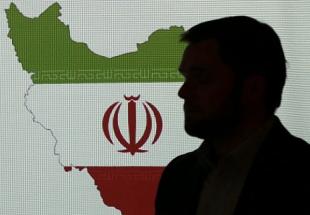
The hacks were the latest in a series of cyberattacks on Israeli firms in recent months. The hacking group published documents related to firms using Portnox’s services, including Bezeq, Elbit, El Al, the Clalit health provider and more, according to the Ynet news site. The firms are some of Israel’s most prominent companies companies
The agents were sent by Iran to gather intelligence on the sites for a terror attack, Kan News reported, citing Western intelligence sources. Some held dual European and Iranian citizenship, and some were arrested in the East African country, while others were apprehended in different countries. The attack was thwarted last month, according to the report.
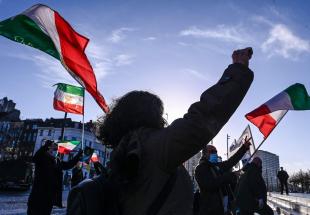
Assadollah Assadi, a counselor at Iran’s embassy in Vienna, was Thursday convicted of organizing the foiled attack that targeted a rally held by the National Council of Resistance of Iran, an umbrella opposition group dominated by the People’s Mujahedeen Organization of Iran, or MEK. The court in Antwerp sentenced three other Iranians to 15, 17 and 18 years respectively in prison for collusion, concluding that Iranian state intelligence had ordered the plot plot
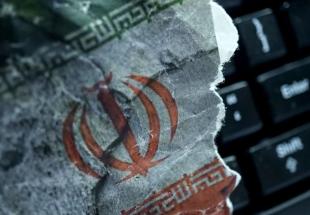
The website contains, among other things, death threats directed toward U.S. election officials, the FBI said in a recent advisory. The intent is to "create fear, divisions, and mistrust in the United States and undermine public confidence in the US electoral process," the FBI said. The Iranian cyber group has also exposed officials' personal information and photographs, a practice known as doxing.
Twitter removed 238 accounts operating from Iran as part of an investigation into influence operations targeting the 2020 US presidential elections, the social media giant said in a press release on Tuesday. The investigation began in October when Twitter removed around 130 Iranian accounts. The FBI told Twitter the accounts were seeking to “disrupt the public conversation” during a presidential debate.
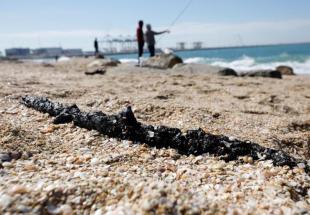
. Israel accused Iran on Wednesday of being linked to a recent oil spill off its shores that caused major ecological damage, calling the incident environmental terrorism. The spill was caused by an oil tanker that was carrying pirated cargo from Iran to Syria last month, Israeli Environmental Protection Minister Gila Gamliel said. The vessel sailed through the Gulf and the Red Sea without radio contact, switching its tracking devices back on before passing through Egypt’s Suez Canal, Gamliel told reporters.
Kawtheryoon Electronic Team, a Telegram network used by Iranian militia groups and supporters, claimed in a recent posting that Iranian "resistance cells are rooted even in America and its capital," according to a copy of the English-language posting captured by the Middle East Media Research Institute, which tracks radical groups. The group additionally claimed that terror factions associated with Iran are growing stronger and attracting more support than ever before. The group demanded the United States withdraw all of its troops from Iraq and the Middle East. The post included a picture of caskets containing U.S. soldiers.
Russian President Vladimir Putin authorized a range of intelligence operations intended to hurt Joe Biden’s presidential campaign and support President Trump’s re-election, while Iran’s Supreme Leader Ayatollah Ali Khamenei approved a digital scheme to undercut Mr. Trump’s re-election bid, the declassified report from the Office of the Director of National Intelligence said.
The attack was part of a wider effort by Iranian operatives to gain access to sensitive information in Germany, an intelligence report said. In the latest breach, workers at German companies received phishing emails that purported to be messages offering them a job. When they clicked on the corresponding links, they unwittingly installed malware on their computer.
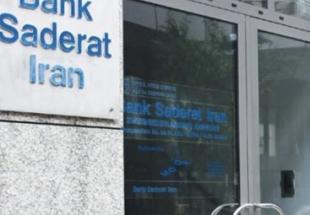
In the largest such case in Bahrain’s history, the Gulf state’s public prosecutor“announced” that the Central Bank of Iran and 12 other Iranian banks, most notably Bank Melli Iran (National Bank of Iran) and Bank Saderat Iran (Export Bank of Iran) will be tried on charges of money laundering in a scheme valued at $1.3 billion. Ali Al Buainain, the Bahraini attorney general, said that “Bank Melli Iran and Bank Saderat Iran used Future Bank to transfer $1.3 billion, using an alternative system that was not licensed by Bahraini authorities and was not subject to them, and these funds were kept, settled and laundered in order to evade international sanctions against Iranian entities and personalities.” A source in the Bahrain Public Prosecution told The Media Line “the investigation proved that the transfer orders were issued by several banks, most notably the Central Bank of Iran.” “Several issues were brought to light, and the funds were in many cases confiscated. All the entities that the bank dealt with secretly were revealed, most notably the Iranian Revolutionary Guard, the Lebanese Hezbollah organization, and other entities in Iraq,” the source said.
The Islamic Revolutionary Guard Corps (IRGC) shot down the Ukraine International Airlines flight with two surface-to-air missiles shortly after takeoff in Tehran on Jan. 8, 2020, killing all 176 passengers onboard. There were 138 passengers onboard with ties to Canada, including 55 Canadian citizens and 30 permanent residents. "The plaintiffs have established that the shooting down of Flight 752 by the defendants was an act of terrorism and constitutes 'terrorist activity'..."Justice Edward Belobaba wrote in his decision issued.
Iran’s Islamic Revolutionary Guard Corps and Hezbollah coordinated with Hamas on the recent fighting in Gaza between Palestinian terrorists and Israel, according to the editor-in-chief of a Lebanese daily affiliated with Hezbollah. Ibrahim Al-Amine, editor of the pro-Hezbollah Lebanese daily Al-Akhbar, told Hezbollah’s Al-Manar network over the weekend that during the 11 days of fighting in the Hamas-ruled Gaza Strip, officers from the IRGC, Hamas and Hezbollah set up a joint military operations center in Beirut. The commander of the IRGC’s overseas Quds Force, Esmail Ghaani, visited the operations center twice during the military hostilities, according to Al-Amine.

An Iranian American journalist living in Brooklyn who has been a sharp critic of the Iranian government was the target of an international kidnapping plot orchestrated by an intelligence network in Iran, federal prosecutors said. In an indictment unsealed in federal court in Manhattan, four Iranians were charged with conspiring to kidnap the journalist and author, Masih Alinejad. Ms. Alinejad was not identified by prosecutors, but confirmed in an interview that she was the intended target of the plot. Last year, Ms. Alinejad wrote in a newspaper article that Iranian government officials had unleashed a social media campaign calling for her abduction.
Facebook said it had taken down about 200 accounts run by a group of hackers in Iran as part of a cyber-spying operation that targeted mostly U.S. military personnel and people working at defense and aerospace companies. The social media giant said the group, dubbed 'Tortoiseshell' by security experts, used fake online personas to connect with targets, build trust sometimes over the course of several months and drive them onto other sites where they were tricked into clicking malicious links that would infect their devices with spying malware. "This activity had the hallmarks of a well-resourced and persistent operation, while relying on relatively strong operational security measures to hide who's behind it," Facebook's investigations team said in a blog post.
IRGC Brigadier General Saeed Aghajani, who oversees the IRGC ASF [Aerospace Force] UAV Command, directs the planning, equipment, and training for IRGC ASF UAV operations. Under his leadership, the IRGC ASF UAV Command orchestrated the July 29, 2021 attack on the commercial shipping vessel Mercer Street off the coast of Oman, which resulted in the deaths of two European crewmen.
The U.S. Department of the Treasury’s Office of Foreign Assets Control (OFAC) designated members of a network of Lebanon- and Kuwait-based financial conduits that fund Hezbollah. Additionally, OFAC designated members of an international network of financial facilitators and front companies that operate in support of Hezbollah and Iran’s Islamic Revolutionary Guard Corps-Qods Force (IRGC-QF). Together, these networks have laundered tens of millions of dollars through regional financial systems and conducted currency exchange operations and trades in gold and electronics for the benefit of both Hezbollah and the IRGC-QF. Hezbollah, with the support of the IRGC-QF, uses the revenues generated by these networks to fund terrorist activities, as well as to perpetuate instability in Lebanon and throughout the region.
Turkish authorities have detianed eight people, including two alleged Iranian agents, who attempted to abduct a former Iranian soldier back to Iran, Turkey’s state-run agency reported. The Anadolu Agency said the eight were caught in the eastern province of Van, which borders Iran, in a joint operation by Turkey’s police and intelligence agency. A Turkish government official confirmed the arrests but did not elaborate. Anadolu said the Iranian agents were sent to Turkey with the purpose of creating a “network” that would kidnap and smuggle the soldier back to Iran. The group reportedly offered money to the soldier’s wife to help them kidnap him and threatened to harm family members in Iran if she refused.
Israel accuses Iran of orchestrating an attempted attack against Israelis in Cyprus after police on the Mediterranean island said an armed individual had been arrested. Iran swiftly denies the accusation. “This was a terrorist incident directed by Iran against Israeli businesspeople living in Cyprus,” Matan Sidi, spokesman for Prime Minister Naftali Bennett, said in a statement. Earlier on Monday, Cypriot police chief Stelios Papatheodorou told reporters: “A person has been arrested, in whose possession a pistol and cartridges were found.” Israel appeared to hint that its intelligence services had contributed to Cyprus' foiling of the suspected attack plot.
The security forces of the Islamic Republic of Iran aided a man in his release who reportedly shot three young women in the back, in the city of Isfahan while they were riding bicycles in August. Sheina Vojoudi, an Iranian dissident who fled to Germany to escape persecution, said the “Basij attack civilians on the streets, especially women, if according to them the women don’t have a proper hijab.” The Basij is a paramilitary force of young and fanatically pro-Iranian regime men. Vojoudi continued, “No one in Iran can do something like that and be released on bail except when they are allowed by [Supreme Leader Ali] Khamenei to fire at will, or Basij or somehow related to one of the Islamic Republic’s organs. When there is a private complainant, it is impossible to be released without their consent. Only someone related to the regime can commit a crime like this and then force the complainants to consent.”
An armed drone strike in October on an American military base in southern Syria was Iranian retaliation for Israeli airstrikes in Syria, according to eight American and Israeli officials who spoke on the condition of anonymity to discuss intelligence matters. The drone attack, which caused no casualties, would be the first time Iran has directed a military strike against the United States in response to an attack by Israel, an escalation of Iran’s shadow war with Israel that poses new dangers to U.S. forces in the Middle East. Five so-called suicide drones were launched at the American base at Al Tanf on Oct. 20 in what the U.S. Central Command called a “deliberate and coordinated” attack. Only two detonated on impact, but they were loaded with ball bearings and shrapnel with a “clear intent to kill,” a senior U.S. military official said. Most of the 200 American troops stationed at the base, whose main role is training Syrian militias to fight the Islamic State, had been evacuated hours earlier after being tipped off by Israeli intelligence, the officials said.
Hackers believed to be linked to Iran have breached an Israeli internet hosting company, taking down several of its sites. The hackers released some alleged personal information online, including from an LGBT dating site, according to Hebrew media reports. “Atraf,” a geo-located dating service as well as a nightlife index, is a popular app and website in the Israeli LGBT community, especially in the Tel Aviv area. According to Hebrew media sites, names of “Atraf” users and their locations were posted online. The data leak had worried users it could expose those still in the closet.
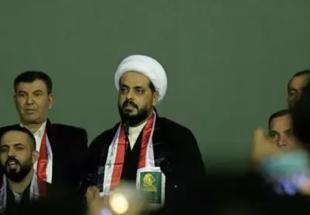
After an "Islamic State of Iraq and Syria" (ISIS) attack October 26 on al-Rashad neighborhood in al-Muqdadiya district of Diyala province left 15 dead, armed men allegedly linked to Iran-backed militias, including Asaib Ahl al-Haq, went on a revenge killing spree in neighboring Sunni-majority towns. At least three children were among the dead, and several homes were set on fire in the villages of Nahr al-Imam and al-Ameriya, security sources said. In an October 31 statement to the United Nations Human Rights Council and Security Council, the Al-Rafidain International Centre for Justice and Human Rights called for a quick and impartial investigation into the killings. It namely blamed Asaib Ahl al-Haq leader Qais al-Khazaali and Badr Organization head Hadi al-Ameri for the "sectarian crimes" in Diyala, and urged to hold all those responsible accountable.
Five people have been arrested in African countries over suspicions that they were planning on carrying out attacks against Israeli tourists or businesspeople on behalf of Iran, an Israeli television network reports. The five, who had been in Senegal, Tanzania, and Ghana, were recruited by Iran’s Quds Force expeditionary arm of the Islamic Revolutionary Guards Corps, according to the report from Channel 12 news, which did not attribute the information to a source. The five were arrested in the African countries by local intelligence, who were working off information obtained from “Western” spies, the channel said. According to intelligence information cited by the channel, the five were given special training and unspecified materials in Lebanon and then sent back to Africa with a cover story of being religious students, where they were given the mission of finding Jewish and Israeli targets to attack. Among the top targets were Israeli tourists on safari in Tanzania, the channel said.
A drone attack that targeted the Iraqi prime minister was carried out by at least one Iran-backed militia, Iraqi security officials and militia sources said, weeks after pro-Iran groups were routed in elections they say were rigged. Some reports suggest while Iran may not have directly ordered the attack, it likely had foreknowledge of the operation. Prime Minister Mustafa al-Kadhimi escaped unhurt when three drones carrying explosives were launched at his residence in Baghdad. Several of his bodyguards were injured. Many Iraqis fear that tension among the main Shi'ite Muslim groups that dominate government and most state institutions, and also boast paramilitary branches, could spiral into broad civil conflict if further such incidents occur. Iraqi officials and analysts said the attack was meant as a message from militias that they are willing to resort to violence if excluded from the formation of a government, or if their grip on large areas of the state apparatus is challenged.
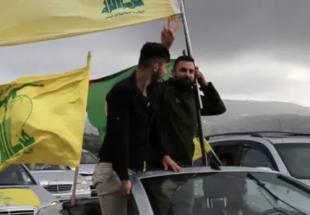
Two members of the Lebanese Hezbollah terrorist organization were arrested in Colombia… Colombian Defense Minister Diego Molano revealed in an interview with the Colombian newspaper El Tiempo. El Tiempo additionally reported that a former intelligence agent, who had been assigned until recently to the Israeli diplomatic team in Colombia, realized he was being spied on by Hezbollah in Bogota, with information collected by foreign agents, including the Mossad, indicating that the terrorist group had been spying on the agent throughout his daily routine. Colombian authorities were notified that there were indications that the agent, who had opened an import and marketing company for surveillance cameras and technology, was a target for assassination. The agent was evacuated to Tel Aviv in a secret operation, according to El Tiempo, with the report on the incident stating that he wasn't the only individual being monitored by Hezbollah. A number of high-profile foreigners in the country were reportedly potential targets for the group.
Bahrain security forces have arrested a number of suspects, and confiscated weapons and explosives ahead of a planned attack, the interior ministry said. The ministry did not say how many people were arrested or specify their nationalities. “Terrorists (were) arrested for plotting terrorist operations against security and civil peace,” the interior ministry wrote on Twitter on Monday. It described them as “linked with terrorist groups in Iran.”
An Iranian man, Mohammed Saeid Golabi, has been arrested in Kenya on suspicion of planning terror attacks against local and Israeli interests, according to an exclusive report in the daily Kenyan newspaper The Star. Kenyan police had monitored the activities of Golabi and his local associates, and were convinced of his links to terror activities, multiple Kenyan police sources told The Star. Golabi visited the region frequently, and is suspected of working with a group of Kenyans to gather intelligence against establishments both private and state-owned, with the aim of attacking them, the report said.
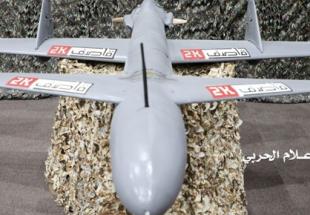
The Iran-aligned Houthi movement that controls northern Yemen hijacked a United Arab Emirates-flagged cargo vessel which it said was engaged in "hostile acts" but which the Saudis said was carrying hospital equipment. The ship was heading to the Saudi port of Jizan, just north of Yemen, from the Yemeni Red Sea island of Socotra when it was attacked just before midnight on Sunday, Saudi state news agency SPA reported, quoting coalition spokesman Brigadier General Turki al-Malki. Saudi Arabia is leading a military coalition that has been battling the Houthis for more than six years. The alliance has accused the Houthis of attacking shipping in the Red Sea, one of the world's busiest maritime lanes leading to the Suez Canal. The cargo ship was hijacked off the western Yemeni port of Hodeidah, the coalition said. The Houthis' military spokesman, Yahya Sarea, confirmed seizure of the vessel which he said was carrying military equipment and engaged in "hostile acts targeting the security and stability of the Yemeni people.”
Military bases in Iraq and Syria that hold American troops were attacked, though no US forces were killed in the strikes, according to Iraqi officials and the U.S.-led coalition. There have been multiple attacks this week coinciding with the second anniversary of the U.S. assassination of a key Iranian general. U.S.-led coalition forces fired back after they were attacked by suspected Iranian-backed militias who fired eight rounds of indirect fire at their base in eastern Syria near the Iraqi border, according to a statement from the coalition. In a separate attack, at least five rockets landed inside the Iraqi military’s al-Asad base in western Anbar province without causing any casualties.
Yemen's Iran-aligned Houthi movement used cruise missiles and ballistic missiles alongside drones in a deadly strike on the United Arab Emirates, which intercepted part of the attack, the Gulf state's ambassador to the United States said. On the day of the first attack, top Houthi negotiator Mohammed Abdulsalam met with Iranian President Ebrahim Raisi in Tehran, according to the Al-Mayadeen news outlet. At the meeting, he referred to the attack as a response to the UAE’s military involvement in Yemen. It is the first time the UAE, which rarely discusses its security in public, has said missiles were used in the assault that killed three civilians in Abu Dhabi, and the first time it has claimed to have intercepted some of the weapons. The Houthis said they fired four Quds cruise missiles at an oil refinery in Musaffah district and the airport in Abu Dhabi, a Zulfiqar ballistic missile at Dubai airport and several drones at those and other sites. The UAE said the attack hit a fuel depot of state oil firm ADNOC in Musaffah and a construction site near Abu Dhabi airport. Abu Dhabi police said they found parts of small planes that could possibly be drones.
According to the Iranian state news agency IRNA Amirabdollahian stressed during the conversation [with his UAE counterpart] that ‘the Zionist regime’s presence is a threat to the regional security’, in a reference to the normalisation of ties between Israel and some Gulf countries including the UAE. The same day a little-known extremist group claimed a drone attack on the United Arab Emirates, raising the possibility that Iran has decided to mobilise its proxy militias from other countries in the region beyond Yemen. Alwiyat al-Waad al-Haq (True Promise Brigades), which is believed to be simply a cover name used by pro-Iranian factions operating in Iraq, said it launched four drones at dawn on Wednesday targeting the Gulf state. The UAE announced the interception and destruction on Wednesday of three "hostile drones,” which follows three previous drone and missile attacks claimed by Yemen's Iran-backed Houthi rebels since January 17.
At least two Iranians belonging to the Islamic Revolutionary Guard Corps’ Quds Force are plotting to assassinate former U.S. National Security Advisor John Bolton, according to a Justice Department official with direct knowledge of the investigation. Ambassador Bolton currently sits on the UANI advisory board. The source tells the Washington Examiner that the department possesses indictable evidence against the Iranians but that Biden administration officials are resisting publicly indicting the men for fear that it could derail their drive for a nuclear deal with Iran. Ambassador Bolton is reportedly under U.S. Secret Service Protection as a result of the threat to his life. It is possible but unlikely that there are sealed indictments against the men, but the Justice Department source said the seriousness of the conspiracy and the evidence warranted public indictment without delay.
The Special Tribunal for Lebanon convicted Hassan Habib Merhi and Hussein Hassan Oneissi for their roles in the terrorist attack on 14 February 2005 that resulted in the assassination of former Prime Minister Rafik Hariri, the killing of 21 others and injury to 226 people. In addition to convicting Merhi and Oneissi, the Appeals Chamber concluded that a network of phones, labelled by the Prosecution as the “Green Network”, was used to coordinate the attack. Merhi and Ayyash, both convicted by the Tribunal, were members of the Green Network. This network, found by the Appeals Chamber to be a covert Hezbollah network, was coordinated by Mustapha Amin Badreddine, who was found to be a Hezbollah Military Commander during 2004 and 2005, and who was reportedly killed in Syria in 2016.
The U.S. intelligence community has assessed that Iran will threaten Americans — both directly and via proxy attacks — and that Tehran remains committed to developing networks inside the U.S., according to the intelligence community's 2022 Annual Threat Assessment, published by the Office of the Director of National Intelligence (ODNI). CBS News has obtained two persistent threat assessments submitted to Congress by the State Department in January 2022 which cited a "serious and credible threat" on the lives of former Secretary of State Mike Pompeo and former Trump administration Iran envoy Brian Hook. These non-public assessments show that throughout 2021, and again in 2022, the State Department assessed the need to provide round-the-clock, U.S.-taxpayer funded diplomatic security details to both men.
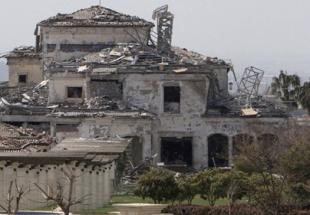
A nascent plan for Iraq's Kurdistan region to supply gas to Turkey and Europe - with Israeli help - is part of what angered Iran into striking the Kurdish capital Erbil with ballistic missiles this month, Iraqi and Turkish officials say. The March 13 attack on Erbil came as a shock to officials throughout the region for its ferocity and was a rare publicly declared assault by Iran's Islamic Revolutionary Guard Corps (IRGC). The IRGC said the strike hit Israeli "strategic centres" in Erbil and was retaliation for an Israeli air raid that killed two of its members in Syria. The choice of target, however, baffled many officials and analysts. Most of the 12 missiles hit the villa of a Kurdish businessman involved in the autonomous Kurdistan region's energy sector. Iraqi and Turkish officials who spoke to Reuters on condition of anonymity this week said they believe the attack was meant as a multi-pronged message to U.S. allies in the region - but that a key trigger was a plan to pump Kurdish gas into Turkey and Europe, with Israel's involvement.
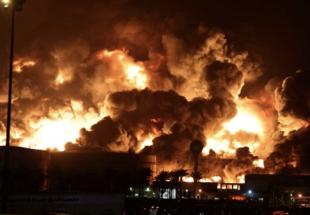
Yemen's Houthis said they launched attacks on Saudi energy facilities and the Saudi-led coalition said oil giant Aramco's petroleum products distribution station in Jeddah was hit, causing a fire in two storage tanks but no casualties. A huge plume of black smoke could be seen rising over the Red Sea city where the Saudi Arabian Grand Prix took place, an eyewitness said. The Iran-aligned Houthis have escalated attacks on the kingdom's oil facilities in recent weeks and ahead of a temporary truce for the Muslim holy month of Ramadan. The coalition has repeatedly said it is exercising self-restraint in the face of the attacks, but launched a military operation in Yemen saying it aimed to protect global energy sources and ensure supply chains…The ministry blamed Iran for continuing to arm the Houthis with ballistic missiles and advanced drones, stressing that the attacks "would lead to impacting the Kingdom's production capacity and its ability to fulfil its obligations to global markets.” Teheran denies arming the Houthis.
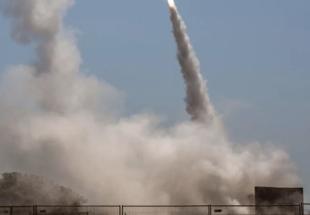
Militants in Gaza fired rockets into Israel on April 18th April 20th, and April 22nd. No group claimed responsibility for the rocket attacks, but the Israeli Defense Forces (IDF) suspect Hamas of initiating them. On the day of the first attacks, Ali Akbar Velayati, the foreign policy advisor of Iran’s supreme leader, reportedly spoke via phone with Hamas political bureau chief Ismail Haniyeh and Secretary General of the Palestinian Islamic Jihad Movement Ziyad al-Nakhalah. Separately, Iran’s foreign minister, Hossein Amir Abdollahian, engaged in phone calls with the leadership of Hamas and Palestinian Islamic Jihad. On April 25th, militants in southern Lebanon launched a rocket into northern Israel, the Israeli military said, opening a new front in current Israeli-Palestinian tensions. No group claimed responsibility for the attack and no injuries were reported in Lebanon. Israeli officials said they believed that a faction of Palestinian militants based in Lebanon launched the rocket, but couldn’t be certain. Israel says a number of Palestinian militant groups operate in southern Lebanon, where the powerful Lebanese militant and political group Hezbollah has tight control.
Pro-Iranian hackers targeted livestreams on the websites of Israeli radio stations, as Iran and its proxies marked Quds Day. A video replacing the livestreams showed the word "hacked" and a number of Israeli logos as the sound of a siren played followed by a recording in Arabic and a video of the Temple Mount and a rocket being fired. The sites targeted included 100FM, 102.5FM, 91FM, Radio Sol and Hidabroot. The livestreams on the first four websites were not working as of the time of writing, while the livestream on the Hidabroot channel was working.
An operative of Iran's IRGC Qods Force held in a European country has admitted to plotting assassinations in Turkey, Germany and France, diplomatic sources say. The sources who spoke to Iran International on condition of anonymity said the accused who is currently in detention in a European country has admitted to receiving $150,000 for organizing the assassinations with one million promised to be paid to him after the completion of the operations. The alleged operative has confessed, the sources said, that he was ordered to organize the assassination of an Israeli national who worked at the Israeli consulate in Istanbul, an American general in Germany, and a French journalist. Diplomatic sources who spoke to Iran International also said the man in charge of the alleged assassination plots was a member of the secretive Unit 840 of the Qods Force. The unit’s mission is to conduct operations against Western targets and Iranian opposition groups and individuals.
According to a new report from the Lead Inspector General for Operation Inherent Resolve, U.S. military intelligence believes Iran-backed militias have been coordinating with the Kurdistan Workers’ Party (PKK), a U.S. designated foreign terrorist organization, to launch attacks on Turkey’s military in northern Iraq. The report says, “the DIA assessed that the militias probably will continue to coordinate with the…PKK…in response to Turkish air and UAV strikes on PKK positions.” The report adds, “the militias probably calculate that their attacks against Turkey will deter Turkey from attacking the PKK in federal Iraq while enhancing their public image as defenders of Iraqi sovereignty.”
The Shin Bet uncovered an Iranian espionage campaign targeting Israeli academics, businesspersons, and former defense officials, the agency said. The Iranians contacted the Israelis while portraying themselves as academics, journalists, businesspersons, and philanthropists, using the identities of real people from overseas who were unaware their names were being used, the Shin Bet said. The approaches were made using a relevant cover story, with the intention of gathering information about the Israeli targets and perhaps to convince them to travel overseas to kidnap or harm them.
The IDF revealed that Reza Safieddine, the son of Hezbollah Executive Council Chairman Hashem Safieddine and the husband of the late Quds Force Commander Qassem Soleimani’s daughter Zeinab, was coordinating weapons shipments from Iran to Hezbollah. According to the IDF, Reza flies to Iran several times a month to coordinate the weapons transfers, and these occur through passenger flights landing in Syria’s Damascus International Airport.
A court in Israel has charged three Palestinians with planning to kill an Israeli politician, kidnap soldiers and bomb Jerusalem's light railway. The men belong to the militant group Hamas, which governs the Gaza Strip. Israel's internal security agency, which arrested the men, also found an explosive drone which they allegedly planned to use to attack the railway. The three Palestinians belonged to a five-man cell, all of whom come from occupied East Jerusalem and were arrested in April. Those charged are accused of planning to assassinate the far-right Israeli politician Itamar Ben Gvir and to attack other Israeli targets. They are also accused of planning to kidnap Israeli soldiers to use as bargaining chips for the release of Palestinian prisoners held by Israel.
The U.S. Department of the Treasury’s Office of Foreign Assets Control (OFAC) is designated an international oil smuggling and money laundering network led by Islamic Revolutionary Guard Corps-Qods Force (IRGC-QF) officials that has facilitated the sale of hundreds of millions of dollars’ worth of Iranian oil for both the IRGC-QF and Hizballah. This oil smuggling network, led by U.S.-designated IRGC-QF official Behnam Shahriyari and former IRGC-QF official Rostam Ghasemi and backed by senior levels of the Russian Federation government and state-run economic organs, has acted as a critical element of Iran’s oil revenue generation, as well as its support for proxy militant groups that continue to perpetuate conflict and suffering throughout the region.
Five rockets struck the Ain Al-Assad base in Anbar province, which hosts U.S. and coalition forces. There were no casualties or damage reported. This base has repeatedly been targeted by Iran-backed militias in the past. A group called the “International Resistance” claimed responsibility on Telegram—which was previously unknown. Larger and more established Iran-backed militias have in the past constructed front groups to mask their responsibility for such attacks.
The U.S. Treasury, along with the other 6 members of the Terrorist Financing Targeting Center (TFTC)—Bahrain, Kuwait, Oman, Qatar, Saudi Arabia, and the United Arab Emirates (UAE)—jointly a designated Ali Qasir, Meghdad Amini, and Morteza Hashemi, who are part of two networks directed by and providing financial support to the IRGC-QF and its terrorist proxy Hezbollah. These complex networks of intermediaries allow the IRGC-QF to obfuscate its involvement in selling Iranian oil. The IRGC-QF also relies on these individuals to launder money for Hizballah officials and front companies and to broker associated contracts. IRGC-QF and Hizballah financial facilitators Amini and Qasir direct a network of nearly 20 individuals and front companies, located in multiple countries and jurisdictions, that has facilitated the movement and sale of tens of millions of dollars’ worth of gold, electronics, and foreign currency in support of Hizballah and the IRGC-QF.
The Kataib Hezbollah militia launched the explosive-laden drone that attacked from the Pirde subdistrict in Kirkuk province, the Kurdistan Region Security announced in a statement. “Last night’s terrorist attack on Erbil is an extension of the attacks being launched against the Kurdistan Region to put pressure on it,” read the KRSC statement. “Kataib Hezbollah launched the drone used to attack Erbil from the Pirde subdistrict.” The attack came as the International Atomic Energy Agency (IAEA) Board of Governors voted to censure Iran. Iranian media amplified a report that the strike killed a Mossad commander in Erbil.
A Katyusha rocket landed inside the Khor Mor gas field in Sulaymaniyah in northern Iraq but caused no damage, the city's counter-terrorism service said. The Pearl Consortium, United Arab Emirates energy firm Dana Gas (DANA.AD) and its affiliate, Crescent Petroleum, have the rights to exploit Khor Mor and Chemchemal, two of the biggest gas fields in Iraq. No group claimed responsibility, but armed groups that some Iraqi officials say are backed by Iran have claimed similar attacks in the past.
The Mossad spy agency and its local counterparts managed to thwart three Iranian attacks targeting Israeli civilians in Istanbul, a senior security official briefing Hebrew media said, after Iran dismissed Jerusalem’s warnings of a Tehran-directed plot as malarkey. The account came a day after Turkish media reported that 10 people had been arrested as part of an Iranian plot targeting Israelis in Turkey, including a former ambassador. The Islamic Republic claimed Israel was responsible for the killing of Revolutionary Guards Colonel Hassan Sayyad Khodaei in his Tehran home on May 22. Khodaei’s assassination was the most high-profile killing inside Iran since the November 2020 killing of top nuclear scientist Mohsen Fakhrizadeh.
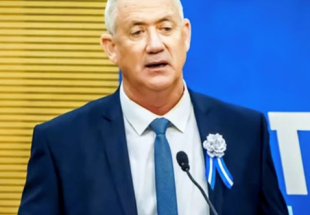
Israel’s defense minister revealed that Iran and Hezbollah recently attempted a cyberattack against the United Nations Interim Force in Lebanon (UNIFIL). He said, “they launched a cyber operation with the aim of stealing materials about UNIFIL activities and deployment in the area, for Hezbollah’s use. This is yet another direct attack by Iran and Hezbollah on Lebanese citizens and on Lebanon’s security.”
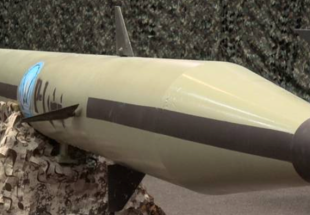
A U.N. fact-finding mission had examined debris from nine ballistic missiles, six cruise missiles and several drones. The weapons analyzed were used in various attacks by the Houthis on Saudi Arabian and UAE territories since 2020 and were alleged to have been transferred from Iran to the Houthis in a manner inconsistent with UN resolution 2231, which endorses the Joint Comprehensive Plan of Action, a preventive agreement to curb Iran’s nuclear ambitions.

The IDF shot down three unmanned aerial vehicles launched by Hezbollah toward Israel’s economic waters over the Mediterranean Sea. One of the three UAVs was shot down by an F-16 and two others were downed by the naval Barak 8 medium-range surface-to-air missile system on the INS Eilat, marking the first time the system was used against aerial threats. According to the preliminary investigation carried out by the military, the UAVs are not believed to have been armed and did not pose a real threat during their flight. It’s believed that they were launched by Hezbollah likely to fly over the Karish gas rig for propaganda purposes.
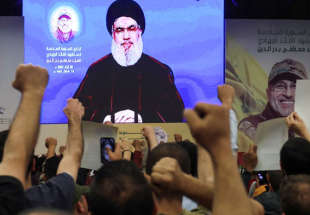
The head of powerful armed group Hezbollah warned that "no one" would be allowed to operate in maritime oil and gas fields if Lebanon was barred from its "rights" in extracting from areas off of its own coast. On July 2, Hezbollah launched three unarmed drones towards the vessel, which Israel intercepted. He hinted at further attacks, saying his group has military capacities on land, in the air and at sea, and could deploy a "large number" of weaponized drones simultaneously. Nasrallah threatened "Karish and beyond Karish," echoing a statement he made a few weeks before a month-long conflict with Israel in 2006 when he threatened "Haifa and beyond Haifa."

A man has been arrested after he was found with an assault rifle outside the Brooklyn home of an Iranian American journalist who was previously the target of a brazen abduction plot by Iranian intelligence agents. Masih Alinejad, an exiled journalist and women’s rights advocate living in New York, has long been critical of the regime in Tehran. Last year, four Iranians were charged with conspiring to kidnap her and take her to the Middle Eastern country, possibly via a daring maritime mission.
As Israel arrested the PIJ commander in the West Bank, Secretary-General of Palestinian Islamic Jihad Ziyad al-Nakhalah visited Iran. While there, Nakhalah met with senior Iranian officials, including Iran’s president, foreign minister, and the foreign policy advisor to Iran’s supreme leader. The Iranian president told Nakhalah that “it is not the so-called peace agreements, but the light path of resistance that has made the enemy desperate and paralyzed and the supporters of the resistance approach in the world hopeful.”

The Justice Department charged a member of Iran’s Islamic Revolutionary Guards Corps with planning to assassinate UANI board member John R. Bolton, who served as the national security adviser to President Donald J. Trump, as payback for the killing of a senior Iranian official. The accused plotter, Shahram Poursafi, 45, is not in custody and remains at large, presumably in Iran. Mr. Poursafi was working on behalf of his government to recruit a network to murder Mr. Bolton, likely in retaliation for the United States military’s killing in January 2020 of Qassem Soleimani.
Iran gives millions of dollars annually to Palestinian Islamic Jihad so that it can attack Israel, Defense Minister Benny Gantz said. He spoke during a joint press conference with his Cypriot counterpart, Charalambos Petrides, who visited Israel less than a week after the end of Operation Breaking Dawn in the Gaza Strip, in which the IDF attacked Islamic Jihad targets. The terrorist group launched 1,100 rockets at Israel, including about 200 that never reached their target but landed instead in Gaza.
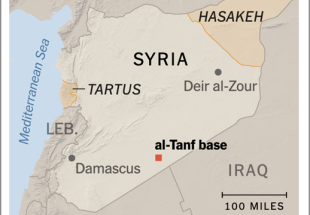
Militias backed by Iran’s Revolutionary Guards force attacked a U.S. military base in southern Syria with drones recently, and a different base used by the U.S.-led coalition near Syria’s eastern border with Iraq came under rocket fire. U.S. officials saw the back-to-back strikes on Aug. 15 as more sophisticated than previous attacks and feared that more were coming. That set off a string of tit-for-tat attacks this week—including U.S. airstrikes on three consecutive nights against Iran-linked targets in Syria. The drone attack, on the U.S. base at al-Tanf, near the border in south Syria, came a day after Israel struck military targets in the Syrian provinces of Damascus and Tartus, killing three Syrian soldiers.
A hacking group that appears to be linked to Iran has been targeting Israeli shipping in recent years, as the shadow war between Israel and Iran began to play out at sea after mainly being waged on land and in the air, a leading US cybersecurity firm said. The hacking group focused on collecting intelligence from Israeli entities and has also targeted Israeli government, energy and health care organizations, said the Virginia-based cybersecurity firm Mandiant.
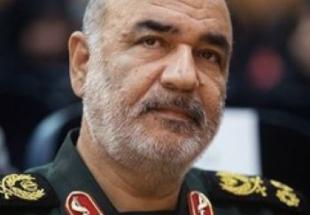
Major General Hossein Salami, Chief commander of the Islamic Revolution Guard Corps, in a conversation with the Office of Preservation and Publication of the Works of Ayatollah Khamenei, stated that the Palestinian movement has grown and matured considerably over time. Major General Salami emphasized that the continuation of Jihad is very important and stated that the same way that Gaza was armed, the West Bank can be armed in the same way and this process is happening.
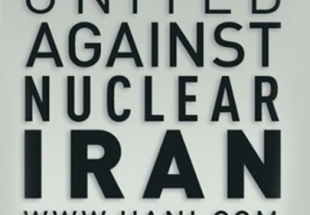
Iranian operatives have targeted several senior members of US-based advocacy group United Against Nuclear Iran (UANI) through surveillance and cyber operations. According to a report by The Dispatch, members of the New York-based think tank have been the subject of suspected Iranian surveillance operations carried out on U.S. soil as well as various phishing operations believed to be carried out by a cyber warfare group linked to the Islamic Republic.
Three U.S. service members suffered minor injuries when Iran-backed militants fired rockets at two military bases in northeast Syria, U.S. Central Command said in a statement. U.S. forces responded with attack helicopters, the statement said, destroying three vehicles and equipment used to launch some of the rockets. The attacks on the bases in Deir al-Zour province came just one day after U.S. forces conducted airstrikes in Syria targeting infrastructure used by groups with ties to Iran’s Islamic Revolutionary Guard Corps. Those strikes were also carried out in Deir al-Zour at President Biden’s direction after U.S. forces reported an attack by drone aircraft on one of their remote outposts last week.
The US Treasury Department sanctioned Iran’s Ministry of Intelligence and Security and its leader for allegedly conducting various hacking campaigns against the US government and its allies, including a July cyberattack that disrupted Albanian government services. The Treasury accused the Iranian spy agency and Esmail Khatib of overseeing “several networks” of hackers involved in cyber espionage and ransomware attacks in “support of Iran’s political goals.” It is the latest attempt by US officials to curb the impact of Iran’s hacking, which, according to analysts, Tehran sees as an asymmetric tool for projecting power and pursing political goals.
Albania blamed the Iranian government for a cyberattack against computer systems used by Albanian state police—just days after the White House condemned Tehran for a hack that disrupted Albanian government services in July. The latest hack forced Albanian officials to temporarily take offline its Total Information Management System (TIMS), a system for tracking the data of those entering and leaving Albania, according to a statement from Albania’s interior ministry. The cyberattack was the work of the “same aggressors” that carried out the July hack, Albanian Prime Minister Edi Rama alleged in a tweet.
The U.S. Justice Department indicted three Iranian men who it alleged encrypted hundreds of systems around the world and demanded ransoms to unlock them. The U.S. Treasury Department said they were linked to Iran’s Islamic Revolutionary Guard Corps (IRGC). That called attention to how—for some of the United States’ top adversaries in cyberspace—the lines between nation-state hacker and cybercriminal, between government employee and freelance contractor, aren’t always clear.
Israeli security forces earlier this month arrested a group of Hamas-affiliated suspects in the West Bank who were planning bombing attacks against Israeli forces and civilians, the Shin Bet (Israel Security Agency) announced. Seven Palestinians from Hebron and Nablus were arrested and interrogated in the operation, led by the Shin Bet and the IDF. From the suspects’ interrogations, the Shin Bet revealed they had been recruited to the Gaza-based terrorist organization by a Hamas operative named Yahya Amer Muhammad Abu Sayfan.
This year, the Israeli army has seized more than 300 weapons—including pistols, Kalashnikovs and M16s—along the Jordanian and Egyptian borders, nearly double the rate in 2021. It has also confiscated 160 guns within the West Bank, including AK-47s and Tavors—the standard-issue Israeli military weapons—which had mostly been stolen from Israeli soldiers. A significant number of arms have also been flowing in from Hezbollah, the Iranian-backed group in Lebanon, according to a senior Israeli military official who spoke on the condition of anonymity to discuss the sensitive security situation.
The IDF’s Cyber Defense Directorate has identified an increase of 70% in hostile Iranian activity over the past year. “In the past year, the IDF thwarted dozens of attempts by Iran to carry out cyberattacks,” said a senior IDF official. According to assessments by the IDF’s C4I Corps, there are more than 20 Iranian cyber units, of which at least 10 operate against Israel.
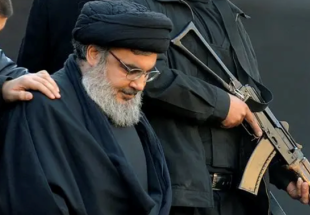
Hezbollah’s Secretary-General Hassan Nasrallah once again threatened Israel during a speech over attempts to develop or extract hydrocarbon resources from the Karish field that is partly claimed by Lebanon. Nasrallah said Hezbollah’s “red line” was for Israel to begin extracting resources from the Karish field prior to the successful conclusion of negotiations, whereby Lebanon would also be enabled to extract oil and gas—which he called the country’s “only chance” at economic recovery.
Rockets landed around Baghdad’s Green Zone. Iran-backed militias have previously lobbed drones and missiles there, but that has become less frequent given the political paralysis in the Iraqi government. The rocket attacks came as the Iraqi parliament voted on the resignation of its speaker. No group had claimed responsibility.
At least eight Katyusha rockets were fired at the Khor Mor gas field in Iraq's Kurdistan region, but the attack did not result in casualties or affect the operations, sources said. Khor Mor is in the Sulaimaniya region of northern Iraq. The Pearl Consortium, United Arab Emirates energy firm Dana Gas (DANA.AD) and its affiliate, Crescent Petroleum, have the rights to exploit Khor Mor and Chemchemal, two of the biggest gas fields in Iraq. No group claimed responsibility for the attack, but Kurdish officials said they believed Iran-backed militias were behind the attack.
Yemen’s Houthi rebels claimed they attacked a cargo ship at an oil terminal in the south of the country as a “warning strike.” It was the first military action announced by the Iran-backed Houthis since a truce between Yemen's warring sides expired on October 2. The Houthis said the attack by explosive-laden drones was meant to prevent pro-government forces from using the port for oil exports. The Marshall Islands-flagged tanker Nissos Kea was the target. The Greek owners said it was undamaged. The incident happened in Ash Shihr.

The United States imposed sanctions on an Iranian foundation it accused of issuing a multi-million-dollar bounty for the killing of novelist Salman Rushdie, who was attacked at an event. The U.S. Treasury Department in a statement said it had designated the Iran-based 15 Khordad Foundation a Specially Designated Global Terrorist, accusing it of placing a bounty on Rushdie after the 1989 call for his execution and increasing it in 2012 to $3.3 million. Rushdie, 75, lost sight in one eye and the use of one hand following an attack on stage at a literary event in western New York in August, his agent said.
Saudi Arabia has shared intelligence with the U.S. warning of an imminent attack from Iran on targets in the kingdom, putting the American military and others in the Middle East on an elevated alert level, said Saudi and U.S. officials. In response to the warning, Saudi Arabia, the U.S. and several other neighboring states have raised the level of alert for their military forces, the officials said. They didn’t provide more details on the Saudi intelligence. Saudi officials said Iran is poised to carry out attacks on both the kingdom and Erbil, Iraq, in an effort to distract attention from domestic protests that have roiled the country since September.
Amman blames instability in southern Syria on Iran-linked militias and multi-billion-dollar drug smuggling across its border, Jordan's foreign minister said. War-torn Syria has become the region's main production site for a multi-billion-dollar drug trade, with Jordan a main transit route to the oil-rich Gulf states for Syrian-made amphetamine, Western anti-narcotics officials and Washington say.
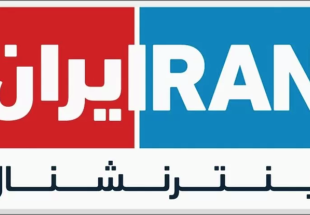
Two British-Iranian journalists for the U.K.-based Persian-language TV channel Iran International have been warned of a possible risk to their lives, a U.K. law enforcement source has confirmed. Iranian Intelligence Minister Esmail Khatib later said Iran International had been identified by Tehran as a "terrorist" organization, that all co-operation and links with it would be considered a threat against national security, and that its "agents" would be pursued, state news agency Irna reported. He also accused the U.K. of spreading propaganda against Iran's clerical establishment and warned it would "pay for its measures to create insecurity." Parent company Volant Media attributed the threats to Iran's Islamic Revolution Guard Corps (IRGC), a powerful military force with close ties to the Supreme Leader, Ayatollah Ali Khamenei.
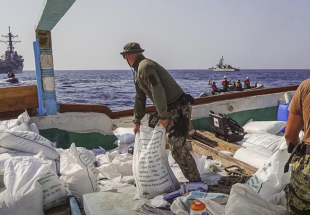
The U.S. Navy said that it found 70 tons of a missile fuel component hidden among bags of fertilizer aboard a ship bound to Yemen from Iran, the first-such seizure in that country’s yearslong war as a cease-fire there has broken down. The Navy said the amount of ammonium perchlorate discovered could fuel more than a dozen medium-range ballistic missiles, the same weapons Yemen’s Iranian-backed Houthi rebels have used to target both forces allied to the country’s internationally-recognized government and the Saudi-led coalition that supports them. The apparent rearming effort comes as Iran has threatened Saudi Arabia, the United States and other nations over the monthslong protests calling for the overthrow the Islamic Republic’s theocracy.
Israel carried out airstrikes in eastern Syria targeting a convoy of vehicles suspected of smuggling Iranian weapons after it crossed the border from Iraq, people familiar with the attack said. The attack near Abu Kamal—a border town often used as a transshipment point by militant groups with ties to Iran’s Islamic Revolutionary Guard Corps—destroyed several vehicles and killed at least 10 people, including an unknown number of Iranians, according to the people and Iraqi militia members. Iraqi officials said the tanker convoy was carrying a legal shipment of fuel that Iran had sent to Lebanon. At least some of the vehicles were believed to be transporting munitions and missiles in addition to oil, the people familiar with the attack said.

The Biden administration has determined that Iranian threats against former Secretary of State Mike Pompeo and one of his former top aides remain credible and persist nearly two years after they left office. The State Department notified Congress last week that both Pompeo and Brian Hook, who served as special representative for Iran during the Trump administration, were still both subject to a “serious and credible threat from a foreign power or agent of a foreign power” stemming from their work while in government. The determinations—which mean Pompeo and Hook will continue to receive government protection—were signed by Deputy Secretary of State for Management Brian McKeon on Nov. 8.
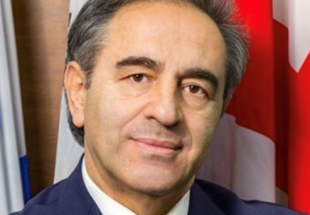
Georgian security officials foiled a recent attempt by the extraterritorial arm of Iran’s Revolutionary Guards, the Quds Force, to kill a prominent Israeli-Georgian living in the capital Tbilisi, The Times of Israel has learned. This isn’t the first time Iranian forces have tried to attack Itzik Moshe, according to an Israeli security official. Moshe, 62, served in the past as a senior Jewish Agency representative in Russia, and founded Israeli House, which seeks to improve Israel’s image in Eastern Europe. Quds Force operatives in multiple countries planned the attack. Under Iranian direction, a Pakistani team affiliated with al-Qaeda traveled to Tbilisi to gather intelligence and prepare for it.
Saudi Al-Hadath news issued a report claiming that Hezbollah was storing hundreds of missiles carrying chemical weapons at a warehouse in Qusayr, Syria, near the Lebanese-Syrian border. These missiles allegedly include 110 Fajr missiles and over 300 Fateh missiles, and all carry thionyl chloride, a toxic chemical. The weapons and other equipment were transferred from the Syrian Scientific Studies and Research Center (SSRC) in Masyaf to the location in Al Qusayr nearly two weeks ago. Sources informed Al-Hadath that experts from North Korea injected the toxic chemicals into the missiles under the supervision of an Iranian national and expert specializing in chemical weapons, identified as Qassem Abdullah Massoudyan. The IRGC Unit 2250 was in charge of transporting the missiles to Al Qusayr, with an IRGC operative named 'Abd al-Ilah Bagheri, also known as Hajj Sadiq, supervising the move, according to the report.

Yemen's Houthis attacked al-Dhabba oil terminal in Hadhramaut province, the group and Yemen's internationally recognized government said. The Iran-aligned Houthis fired a projectile from a drone that landed at the entrance of the terminal, which is located in the town of al-Shihr, two workers at the terminal told Reuters. The Houthis have been attacking oil ports in government-held areas as they pile pressure to extract economic gains in U.N.-led talks for an extended truce deal that have dragged on. Officials say these attacks have disrupted crude oil exports, choking state revenues.
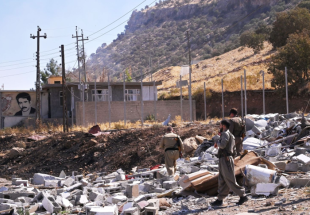
Iran launched drones and missiles against Kurdish groups in northern Iraq, the second time in a week, as the Islamic Republic intensifies efforts to suppress a two-month-old protest movement inside its borders. Iran’s Islamic Revolutionary Guard Corps said that it had targeted Kurdish military bases in Erbil and Sulaimaniya, alleging that factions there are fomenting unrest in Iran. The latest strikes are part of Tehran’s campaign to retaliate against outside groups and foreign governments that it has blamed for supporting the discord at home. The strikes caused at least one death in Koysinjaq, some 47 miles east of Erbil, where the IRGC targeted a civilian hospital with surface-to-surface missiles, according to the Kurdistan Democratic Party of Iran.
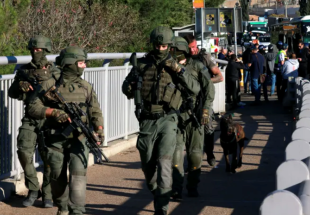
Palestinian terrorist attacks in Jerusalem might lead Iran to try to operationalize its proxies, including Palestinian Islamic Jihad, and threaten Israel by exploiting the attacks. Iran might try to stoke more tensions or encourage Islamic Jihad to carry out attacks. It might also try to create tensions that inflame the West Bank or Gaza. This year has already seen a large number of clashes between Israel and Palestinian militants in the West Bank.

Bernard Henri Lévy was targeted by a unit of the Quds Force, the special operations branch of the Islamic Revolutionary Guard Corps (IRGC), probably because of his international prominence as a public intellectual who has been critical of the country’s leadership. Intelligence officials said the Quds Force tapped an Iranian drug dealer, who recruited others to help in the slaying, and paid him $150,000. In a text message, Lévy declined to comment.
German state security sources accused Iran’s Islamic Revolutionary Guard Corps of contracting state-sponsored terrorism against German synagogues in the state of North Rhine-Westphalia and spying on the president of the Central Council of Jews in Germany. According to a report from the German TV station ARD political magazine Kontraste, security sources believe the German-Iranian Ramin Y. is behind the attacks. “We’re talking about state terrorism here,” one investigator told Kontraste. The attacks involved a shooting, targeting a synagogue in Essen and a failed arson attack on a synagogue in Bochum.
Hacked documents recently released have cast serious doubts on the official account of a terrorist attack on a shrine in Iran last month which claimed 15 victims. ISIS claimed responsibility for the attack, however documents from the IRGC’s media arm, Fars news agency, which were marked “top secret,” indicate that the author believed at least parts of Iran's several intelligence organizations had knowledge of an imminent terrorist attack but did not take any action to stop it. Many Iranians have been very skeptical of the official account. They suspect the government of complicity with ISIS in the attack, to create its own narrative and martyrs to divert attention from fierce antigovernment protests, which were particularly intense on the day of the attack, as it was the 40th-day memorial for Mahsa Amini.
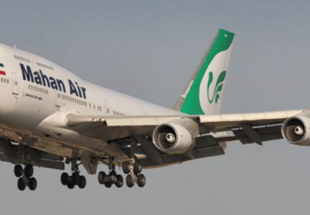
In a confidential warning to its clients seen by Iran International, London-based Lloyds Marine Insurance Company said that the Quds Force of the Islamic Revolutionary Guard Corps (IRGC) and Hezbollah illegally send gold from Venezuela to Iran to finance the terrorist activities of Tehran-backed militias in Lebanon, bypassing sanctions. Lloyds further added that flights from Caracas to Tehran via Mahan Air are being used as an illicit channel to ship gold to pay for Iranian oil, in breach of applicable sanctions.
An Albanian court convicted an Iranian man on terrorism-related charges and sentenced him to ten years’ imprisonment, court officials said. In a ruling, Albania’s Special Court on Corruption and Organized Crime found Bijan Pooladrag guilty of funding terrorism and being a member of a terrorist organization. No details on Pooladrag’s age, home city, or when he had come to Albania were made known. Pooladrag denied the charges. He has the right to appeal the verdict.
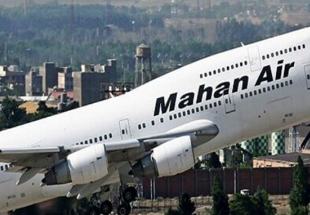
While Israel attacks shipments of Iranian arms to Syria and Lebanon, new information indicates that Mahan Air, a sanctioned airline, continues transferring weapons across the region. According to a report by Israeli daily Yedioth Ahronoth, the airline is pursuing its activities under cover of a travel agency with normal tickets. Data disclosed by the Alma Research and Education Center, an Israeli defense watchdog that specializes in threats from Lebanon and Syria, indicate that Mahan Air serves as the Islamic Republic’s main cover for transporting sizeable quantities of weapons to its proxies across the region.

Kiya Sadeghi, a member of an Iranian intelligence network, attempted to hire a private investigator in Canada to conduct surveillance on anti-regime activists, The Fifth Estate has learned. Kiya Sadeghi is wanted by the FBI in the United States along with three other Iranian intelligence operatives for allegedly plotting to kidnap exiled Iranian journalist and activist Masih Alinejad from her home in New York City. According to a June 2021 indictment filed in U.S. District Court, Southern District of New York, Sadeghi used false pretenses to hire private investigators in the United States, Canada, and the United Kingdom to conduct surveillance on Alinejad and other dissidents.
An audio file shared on social media revealed that the regime threatens Iranians abroad for taking part in anti-government protests and expressing opposition. In the audio file published by the VOA Farsi service, a security agent of the Islamic Republic, who introduces himself as an agent of the intelligence ministry, threatens "Massi Kamri," an Iranian activist living in France, saying if she does not stop acting against the regime, they will imprison her parents and family members in Iran. Apparently, she participated in rallies against the Islamic Republic’s bloody crackdown on anti-government protests that have engulfed Iran following the death in custody of 22-year-old Mahsa Amini.
German police took into custody a 32-year-old Iranian citizen suspected of having procured deadly poisons cyanide and ricin to commit an "Islamist-motivated" attack, authorities in western Germany said. The residence of the suspect in the city of Castrop-Rauxel was searched as part of the investigation, according to a joint press release from the Duesseldorf public prosecutor's office and police in the cities of Recklinghausen and Muenster. Police said the Iranian was suspected of having planned a "serious act of violence endangering the state" by allegedly procuring cyanide and ricin to commit an Islamist-motivated attack. This carries a prison sentence of between 6 months to 10 years.
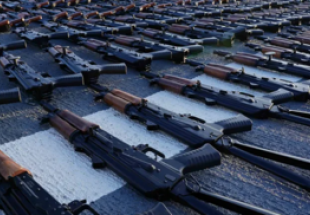
The U.S. Navy intercepted a shipment of more than 2,000 Iranian AK-47 assault rifles destined for Yemen, according to a statement from the U.S. military. The interception took place in international waters in the Gulf of Oman, U.S. Central Command said. A team from the USS Chinook, a patrol coastal vessel, boarded the other ship along a route historically used to smuggle weapons from Iran to the Houthis in Yemen. A photo from the USS The Sullivans shows the 2,116 assault rifles covering the deck of the guided missile destroyer.
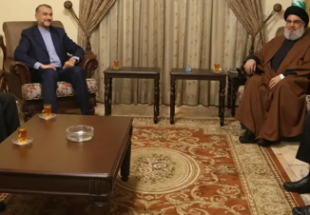
Iranian Foreign Minister Hossein Amir-Abdollahian traveled to Beirut to meet with senior Lebanese officials and political figures such as Hezbollah chief Hassan Nasrallah. Hezbollah said in a statement that Nasrallah and Amir-Abdollahian discussed Israel’s new, hardline government and regional developments. He also held a meeting with Secretary-General of Palestinian Islamic Jihad Ziyad al-Nakhalah during his trip to Lebanon.

Iranian and Russian hackers are targeting British politicians and journalists with espionage attacks, officials have warned. The National Cyber Security Centre has issued a fresh alert about increasing attempts to steal information from specific groups and individuals. NCSC said the hackers usually target those doing research and work about Iran and Russia.

The Justice Department charged three men in an alleged plot that originated in Iran to kill an Iranian-American author and activist who has spoken out against human rights abuses there, officials said. The men, Rafat Amirov, 43, of Iran, Polad Omarov, 38, of the Czech Republic and Slovenia and Khalid Mehdiyev, 24, of Yonkers, New York, were charged with money laundering and murder-for-hire in an indictment unsealed in federal court in New York. The three men were in custody and one was awaiting extradition to the U.S. Masih Alinejad, an Iranian opposition activist, journalist, and writer in exile in New York City, confirmed to The Associated Press that she was the intended target.
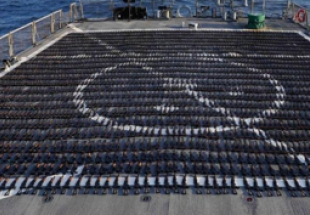
Elite French special forces seized a boatload of Iranian-supplied weapons and ammunition bound for militants in Yemen as part of a deepening effort to contain Tehran, according to officials familiar with the operation. On Jan. 15, the officials said, a French warship stopped a suspected smuggling ship off the Yemeni coast where the specially trained French team boarded the boat. On board, the officials said, the French military discovered more than 3,000 assault rifles, at least a half million rounds of ammunition and over 20 anti-tank guided missiles.
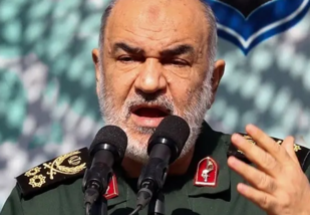
The head of Iran’s Islamic Revolutionary Guard Corps (IRGC) threatened punishment for those behind the desecration of Islam’s holy book, the Quran, in Europe. “Today, we are the guardians of Islam and the Quran … We say to those who burned the Quran, this fire will catch your bodies and turn them into corpses,” state news agency IRNA quoted Maj. Gen. Hossein Salami as saying. “Live in secret from today and have nightmares every night, Muslims will not leave you even if decades pass,” added Salami.

An Iranian government-backed hacking team allegedly stole and leaked private customer data belonging to French satirical magazine Charlie Hebdo, security researchers at Microsoft said. The magazine was hacked in early January after it published a series of cartoons that negatively depicted Iran's Supreme Leader Ayatollah Khamenei. The caricatures were part of a media campaign that Charlie Hebdo said was intended to support anti-government protests in the Islamic nation.
Britain says it has for the first time presented evidence that Iran is supplying advanced weapons to the Houthi rebels in Yemen, after finding images of tests conducted at the headquarters of the Revolutionary Guards in Tehran on the hard drive of an unmanned aircraft seized by the Royal Navy. Personnel from the British ship HMS Montrose seized the unmanned quadcopter along with a shipment of missiles and missile parts in February last year when they stopped and searched a number of fast-moving skiffs in the Gulf of Oman. The weapons and other evidence were presented to the United Nations as linking Iran to violations of Security Council resolutions barring weapons shipments to the Houthis, Britain’s Ministry of Defense said Monday in London.
Australian security agencies disrupted a foreign interference plot by Iran that was targeting an Iranian-Australian on Australian soil, the government said. The plot allegedly included individuals monitoring the home of a critic of the Iranian regime and extensively researching the person and their family. The home affairs minister, Clare O’Neil, revealed the incident in a speech to the Australian National University while also describing foreign interference as “one of the core threats our democracy faces.”
The number of cyberattacks by Iran on targets in Israel has doubled in the past year, the director general of the Israeli Nation Cyber Directorate (INCD) has told Tech Monitor. Speaking to Tech Monitor at the Cybertech Conference in Tel Aviv, Portnoy said his organization has thwarted 1,000 potential cyberattacks over the past year, far outstripping its neighbors. Iran’s cyberattacks against Israel doubled in the past year, explains Portnoy. Other countries in the region have felt the same pressure, from cyber espionage to ransomware and attacks on critical national infrastructure (CNI).

Saif al-Adel, the apparent new leader of al-Qaeda is in Iran, a United Nations report said, and the United States confirmed the information. U.S. State Department spokesperson Ned Price was asked during his daily press briefing to comment on the UN report. He said: “Our assessment aligns with that of the UN…offering safe haven to al-Qaeda is another example of Iran’s wide-ranging support for terrorism, its destabilizing activities in the Middle East and beyond.” Asked by a reporter what the United States is ready to do if Adel is in Iran, Price said that the Biden administration is determined not to allow threats to emerge.
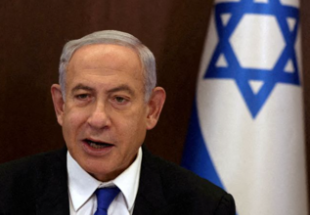
Israeli Prime Minister Benjamin Netanyahu said that Iran was responsible for a reported attack on an oil tanker. An attack on the Liberian-flagged Campo Square was confirmed by the ship's captain, who said it was lightly damaged by an airborne object on Febuary 10 while sailing through the Arabian Sea. Shipping databases linked the tanker to Zodiac Maritime, which is controlled by Israeli shipping magnate Eyal Ofer. "Last week Iran again attacked an oil tanker in the Persian Gulf and harmed the international freedom of navigation," Netanyahu said at a weekly cabinet meeting
Iran is hiring organized criminals to spy on Britain’s Jews in preparation for a potential assassination campaign against prominent members of the community, Security Minister Tom Tugendhat told the Jewish Chronicle. The regime is “mapping” Jews in the diaspora to lay the ground for high-profile revenge murders should Israel launch a military attack against the theocracy. In response, the minister, who is responsible for MI5, said: “You were right. We have very clear intelligence about the activities of hostile regimes in the U.K. and we keep a very close eye on what their agents and those close to them are doing. We know that the Iranians are using non-traditional sources to carry out these operations, including organized criminal gangs.”
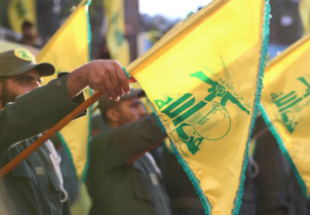
Israel's minister of defense issued an order indicating that an Iranian smuggling operation uncovered last May continues to be a concern. The smuggling operation involves the illegal trade of Iranian oil to Venezuela in return for gold bullion, which is used to fund the Lebanese-based Hezbollah terrorist organization. Israeli Defense Minister Yoav Gallant signed a document revealing that dozens of kilograms of gold were smuggled from Venezuela to Europe and Syria. The gold was transported from Caracas to Tehran via Mahan Air, a privately-owned Iranian airline based in Tehran. The profits from the smuggled gold were then transferred to Hezbollah, according to the findings.
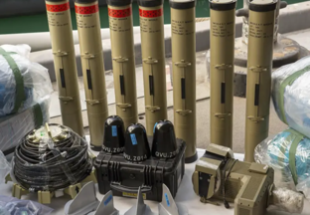
The British navy seized anti-tank missiles and fins for ballistic missile assemblies during a raid on a small boat heading from Iran likely to Yemen, authorities said, the latest such seizure in the Gulf of Oman. The raid took place February 23 after an American aircraft detected a small motorboat with cargo covered by a gray tarp heading from Iran, with a helicopter from the Royal Navy frigate HMS Lancaster chasing the vessel as it ignored being hailed by radio, the British Defense Ministry said. The boat tried to reenter Iranian territorial water, but was stopped before it could.
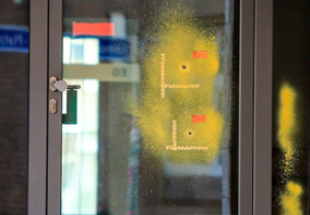
The alleged orchestrator of a shooting of a synagogue in Germany, according to five German security officials and two Western intelligence officials, was Ramin Yektaparast: a muscled Hells Angels leader wanted in the case of a gruesome biker gang murder in Germany. Yektaparast is suspected of directing attacks from Tehran through his criminal networks in Germany, allegedly at the behest of Iran’s Islamic Revolutionary Guard Corps, the officials say.
Hackers linked to the Iranian government were behind a cyberattack last month that shut down the operating systems of an Israeli university, Israel’s cyber authority said. The group responsible for the hack was identified as MuddyWater, which is affiliated with Iran’s Ministry of Intelligence and Security, the National Cyber Directorate said in a statement. The Feb. 12 attack on the Israel Institute of Technology, also known as Technion, used malware to encrypt the operating systems, the Israeli investigation found.
The Islamic Republic opened an office in Syria’s northeastern Hasakah province to recruit young locals to join its proxies. Offering vulnerable young men a monthly salary of $200, The Syrian Observatory for Human Rights reported that the Islamic Republic is on a new drive to recruit militants from one of the region’s poorest countries. It claimed that 80 men are working voluntarily in the office, part of the Islamic Republic's efforts to expand its military and political influence in Syria.
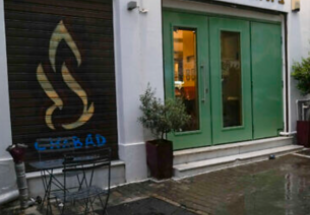
Greek police arrested two Pakistani nationals who were allegedly planning mass-casualty terrorist attacks against Israeli and Jewish targets in the country. Israel’s Mossad spy agency, which aided the Greek investigation, said in a statement that the two were part of an Iranian terror network. The Iran-born pair, aged 27 and 29, were being held at police headquarters in central Athens, Greek authorities said. A third man, who is not in Greece, was wanted for questioning and charged in absentia.
The identities of four of the suspects in the shooting of Azerbaijani MP Fazil Mustafa were published by Azerbaijani media, with the reports alleging that the three were working on the order of Iranian security forces. The four were identified as Azer Sarijanov, Sabuhi Shirinov, Elshad Askerov, and Emin Aliyev, according to the Azerbaijani Turan news site. According to Azerbaijani reports, the suspects visited Iran often and Sarijanov is a religious activist known as "Haji Azer" who posts speeches on YouTube.
A senior Israeli security official revealed the alleged identity of a handler in Iran’s Islamic Revolutionary Guard Corps who recruited a pair of Pakistani nationals accused of planning to attack a Chabad house in Athens. The handler’s name is Mohammad Mohsen Reza, a 65-year-old Pakistani national living in the Iranian city of Qom, the security official told reporters. The official said that Reza has been running a network of fellow Pakistani nationals that has been planning attacks on targets of the IRGC around the globe.
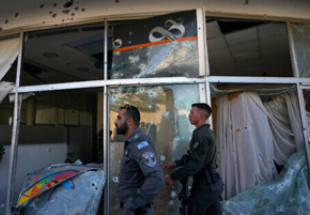
Thirty-four rockets were fired from southern Lebanon, with 25 intercepted by the Iron Dome air defense system over northern Israel, the military said. At least three people were injured and several buildings were damaged. In the evening several mortar shells impacted near the northern town of Metula, not causing any injuries or damage. Israel blamed Lebanon-based Hamas forces for the afternoon attacks, with Israeli official sources saying it would not have been carried out without Hezbollah’s consent. Hamas leader Ismail Haniyeh is currently in Lebanon.
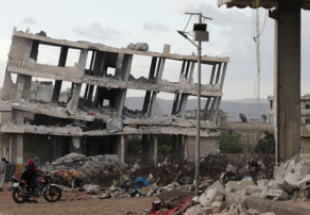
Iran used earthquake relief flights to bring weapons and military equipment into its strategic ally Syria, nine Syrian, Iranian, Israeli and Western sources said. The sources told Reuters that the goal was to buttress Iran's defenses against Israel in Syria and to strengthen Syrian President Bashar al-Assad. Reuters is the first to report this development. After the February 6 earthquake in northern Syria and Turkey, hundreds of flights from Iran began landing in Syria's Aleppo, Damascus, and Latakia airports bringing supplies, and this went on for seven weeks, the sources said.
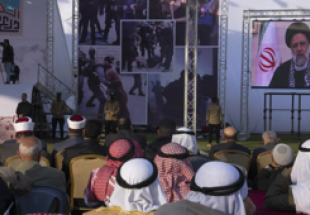
Iran’s president delivered an unprecedented speech to an annual pro-Palestinian rally in the Gaza Strip, a display of Iran’s importance to the Hamas militant group that rules the territory. In a virtual address to hundreds of supporters of Hamas and the smaller Islamic Jihad group gathered at a soccer field, Ebrahim Raisi urged Palestinians to press on with their struggle against Israel. “The initiative to self-determination is today in the hands of the Palestinian fighters,” Raisi said, dismissing Hamas’ domestic political rival, the West Bank-based Palestinian Authority, which has long sought to win Palestinian statehood through negotiations with Israel.
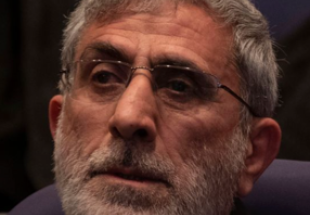
The long shadow war between Iran and Israel is moving into an unpredictable new phase after one of the Islamic Republic’s most powerful military commanders began rallying allies across the Middle East to launch a fresh wave of attacks on Israeli targets. People familiar with the discussions said Esmail Qaani, who leads the Islamic Revolutionary Guard Corps’ elite Quds Force, has held a series of clandestine meetings with militant leaders across the region in recent weeks, including some operating in Syria and Iraq.
Indictments were filed against two Palestinian West Bank residents after they had been recruited to conduct operations on behalf of Hezbollah and the Iranian Islamic Revolutionary Guard Corps (IRGC) Quds Force, the Shin Bet (Israel Security Agency) announced. Yusuf Mansour and Maarsil Mansour allegedly agreed to smuggle and traffic military equipment in Israel for operatives who had identified themselves as representatives of Hezbollah. Yusuf is accused of gathering intelligence with assistance from Maarsil on IDF operations in the West Bank on behalf of the Lebanon-based terrorist organization.
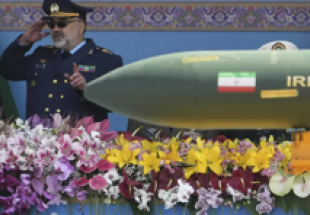
Iran’s president reiterated threats against Israel while marking the country’s annual Army Day, though he stayed away from criticizing Saudi Arabia as Tehran seeks a détente with the kingdom. The comments by Ebrahim Raisi came as fighter jets and helicopters flew overhead in Tehran, and as Iranian submarines sailed across its waters during a ceremony carried live by state television. The day celebrates Iran’s regular military, not its paramilitary Revolutionary Guard, whose expeditionary forces operate across the wider Mideast and aid Iranian-allied militia groups like Lebanon’s Hezbollah.
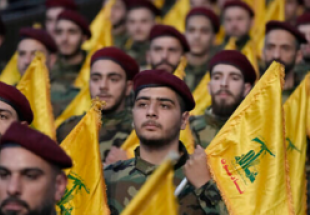
Israeli Defense Minister Yoav Gallant said Iran was the “driving force” of a recent multi-front escalation, while detailing the funding the Islamic Republic provides to its proxies across the region. Gallant told reporters in a briefing that Iran funds the Hezbollah terror group in Lebanon with $700 million a year, as well as “knowledge and strategic weaponry,” such as precision-guided munitions. The Hamas terror group that rules the Gaza Strip is funded by Iran with $100 million annually, with additional funding worth tens of millions of dollars going to the second largest terror group in the Palestinian enclave, the Palestinian Islamic Jihad, Gallant said.
Iran is using a state-controlled media group to spread antisemitic messaging to English-speaking audiences online, according to a report. Iran’s Press TV, an English-language government mouthpiece, uses social media to evade broadcast bans and disseminate propaganda, said the report by the Anti-Defamation League and the Center for Countering Digital Hate, a U.K.-based nonprofit. Press TV was founded by the regime in 2007 to “break the global media stranglehold of Western outlets.”
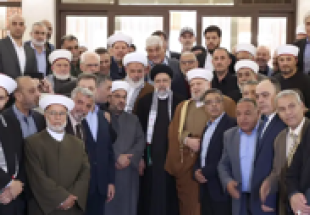
Iranian President Ebrahim Raisi met with anti-Israel groups during his two-day visit to Syria, Tehran's close ally, where he also signed several agreements. Heading a high-ranking politico-economic delegation, Raisi arrived in Damascus. The visit was the first by an Iranian president since the civil war broke out in Syria in 2011. During the meeting with the leaders and commanders of the militant groups, Raisi reiterated Tehran’s claim about the future of the region, saying that Israel’s elimination may happen very soon as signs of its decline are visible, and described “resistance” as the only way to counter “the occupying regime.”
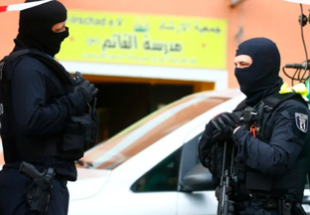
German federal prosecutors announced the arrest of two alleged members of Hezbollah suspected of recruiting and organizing activities for the Iranian-backed group. Named only as Lebanese national Hassan M. and German-Lebanese dual citizen Abdul-Latif W., the pair were detained in northern Germany, the federal prosecutor’s office said in a statement. It said Abdul-Latif W. joined the organization “at the latest” in 2004 and Hassan M. in 2016. They are both now facing charges of “membership of a foreign terrorist organization.”
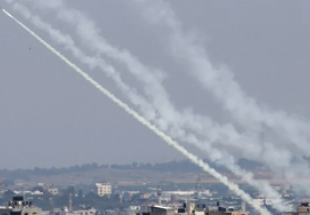
A source in the Gaza-based Palestinian Islamic Jihad terror group told i24NEWS that the Boraq 85 rocket that hit the central Israeli city of Rehovot, killing one person, was Iranian-made. The Boraq 85 is a relatively new weapon system fielded by Gaza's Palestinian Islamic Jihad. Police said four others were also wounded, and six people were being treated for anxiety. The same source also said that the rocket intercepted the day before by Israel's David's Sling air defense system was the Iranian Boraq 85 model.
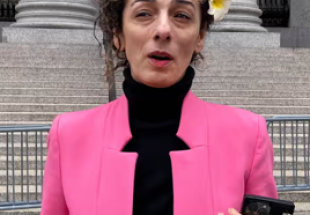
U.K. Metropolitan police received credible threats to the life of Masih Alinejad, a leading Iranian dissent based in the U.S. Masih Alinejad has been put under 24-hour police protection in the U.K. after the Metropolitan police received credible threats to her life. Alinejad has become one of the main amplifiers of the protests inside Iran, appearing at the U.N. and meeting European leaders such as France’s Emmanuel Macron and the Netherland’s Mark Rutte. The Met, Alinejad said, told her “‘because of the level of the threats we are going to be with you and protect you everywhere you go. So give us your schedules, we have to know everything in advance to prepare close protection.’”
German prosecutors charged a German-Iranian dual national for an attempted arson attack near a synagogue on the orders of the government in Tehran. Babak J. was instructed by an intermediary “acting on behalf of unknown Iranian state agencies” in November 2022 to carry out an arson attack on a synagogue in the region of North Rhine-Westphalia, the federal prosecutor’s office said in a statement. Subsequently, the accused is said to have sought to convince an acquaintance to set fire to a synagogue in Dortmund using a Molotov cocktail but was refused.

Vahid Beheshti, 46, said U.K. counterterror and intelligence agencies are investigating claims that a fatwa—a religious edict delivered by a scholar of Islamic law—calling for his death has been issued. Beheshti was recently discharged from hospital after spending two months on hunger strike in a tent outside London’s Foreign Office and is believed to be recovering in a 'safehouse'. He told the Jewish Chronicle that “nothing” would stop him from returning to Whitehall to protest, despite being “strongly advised” not to by counterterrorism operatives.
A new unit of the Iranian Islamic Revolutionary Guard Corps (IRGC) has been revealed. According to Israel's public broadcaster Kan, Unit 700 is headed by Gal Farsat, a former Al-Quds Force official with extensive connections to senior officials in Iran, Syria, and Lebanon. Unit 700 was reported to be in charge of smuggling supplies and logistics for the Al-Quds Force. In particular, it will be responsible for transferring military equipment to pro-Iranian militias, notably in Syria and to Hezbollah in Lebanon.

The Telegram channel for “Islam World Resistance”—a group affiliated with Iran’s Islamic Revolutionary Guard Corps—announced that it seeks to murder Israeli LGBTQ community members in response to the annual LGBTQ parade in Jerusalem. The IRGC-linked group wrote on Telegram: "March of homosexuals in the occupied holy Al Quds city. After killing these impure [homosexuals], where should we bury them on the earth to not make the earth dirty?”
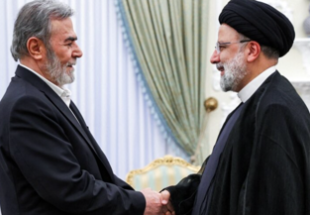
The leaders of Palestinian militant groups Islamic Jihad and Hamas held talks with top Iranian officials in Tehran as deadly violence flared in the Israeli-occupied West Bank. Iranian President Ebrahim Raisi received Islamic Jihad chief Ziad al-Nakhalah while Hamas leader Ismail Haniyeh held talks with Ali Akbar Ahmadian, the newly appointed secretary of the Supreme National Security Council (SNSC), ahead of meeting with other top officials. "The most efficient way to end the more than 75 years of occupation of Palestine is resistance," Ahmadian told Haniyeh, according to the Nournews website close to the SNSC.
France banned an upcoming Iranian opposition rally over the risk of an attack, according to a letter sent to the organizers and seen by Reuters, after the release of an Iranian diplomat convicted of masterminding a plot to bomb the group in 2018. The ban comes as Western powers seek to defuse tensions with Iran and a few weeks after Tehran released several Europeans from prison, including two French nationals. French President Emmanuel Macron held a 90-minute call with Iranian President Ebrahim Raisi on June 10. The Paris-based National Council of Resistance of Iran (NCRI), political arm of the People's Mujahideen Organization of Iran (PMOI), has held frequent rallies in the French capital over the years, often attended by high profile former U.S., European, and Arab officials critical of the Islamic Republic.

Germany’s Federal Office for the Protection of the Constitution claims the Iranian regime employs “state terrorism” to intimidate and eliminate opposition members. It cautioned that Iranians residing in Germany could be targeted by Iranian intelligence and security services for abduction and espionage operations. “Fighting opposition groups and individuals at home and abroad is the focus of Iranian intelligence activities,” reads the Constitutional Protection Report 2022, which has just been released. The report further claimed that spying activities against Israeli and Jewish targets in Germany are still part of Iran's field of espionage.
Israel said its Mossad intelligence service carried out an operation in Iran to capture the suspected leader of an Iranian plot to attack Israeli businesspeople in Cyprus and thwart the attack. "In a unique operation on Iranian soil, the Mossad captured the head of the cell, who, during an investigation, gave a detailed confession that led to the exposure and dismantlement of the terrorist cell behind the Cyprus attack," the Mossad said in a statement. Iranian officials were not immediately available for comment. The Israeli agency identified the suspect as Yousef Shahabazi Abbasalilu and said he "received detailed instructions and weapons from senior (officials) in Iran's Revolutionary Guards" to carry out such an attack.
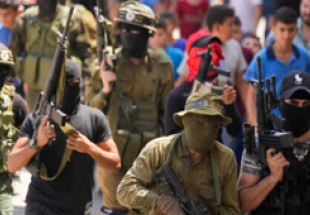
Palestinian Islamic Jihad chief Ziad al-Nakhalah said in an interview that his Iranian-backed terror group was working to establish cells of fighters throughout the West Bank. Speaking with Iranian Arabic-language newspaper Al-Vefagh, Nakhalah said Iranian Supreme Leader Ayatollah Ali Khamenei—with whom he met two weeks ago in Tehran—was supportive of “moving from a state of calm to one of resistance” in the West Bank, while reiterating his support for arming Palestinians there. “The most important thing is that we strengthen the resistance,” the Damascus-based Nakhalah said.

An Israeli researcher missing for months in Iraq is being held by a Shiite militia, according to a statement from the office of Prime Minister Benjamin Netanyahu. Elizabeth Tsurkov, 36, a doctoral student at Princeton University, was kidnapped and held by the group Kataib Hezbollah, an Iraqi militia linked to Iran, after leaving a cafe in Baghdad, the Iraqi capital, in late March, according to her family and people with knowledge of her case. She holds both Israeli and Russian passports and entered the country using her Russian passport, according to the Israeli government. Israel and Iraq do not have diplomatic relations, so she would not have been allowed to enter with an Israeli passport.
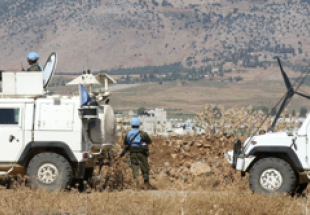
Israel says Hezbollah, an Iranian-backed militia in southern Lebanon, has set up more than two dozen military outposts along the countries’ border in violation of international agreements, a development it says risks increasing confrontation. Under a United Nations Security Council resolution following the 2006 Israel-Lebanon war, armed fighters from Hezbollah are not permitted to enter the border area. Troops from the U.N. Interim Force in Lebanon—or UNIFIL—are stationed there to make sure both sides keep to the rules. Yet in the past year, Israeli military officials say, those outposts have sprung up along the Blue Line, the boundary set by the U.N.
Israeli Defense Minister Yoav Gallant revealed that Israel and other intelligence partners thwarted more than 50 attempts to attack Jewish and Israeli targets worldwide, all orchestrated by Iran. Most of them were at the last stages of execution and were stopped at the "last moment." In his visit to Baku, the capital of Azerbaijan, Iran's northern neighbor, Gallant accused Iranian Supreme Leader Ali Khamenei of overseeing a terrorist campaign "of unprecedented measure" targeting Israelis and Jews.
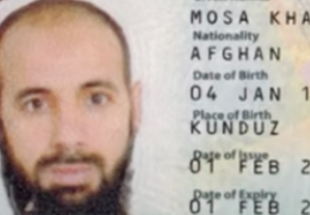
Israeli Foreign Minister Eli Cohen said Iran was responsible for a foiled plot to attack the Israeli embassy in Azerbaijan. Azeri security forces arrested a 23-year-old Afghan national, Fawzan Mosa Khan, on suspicion of planning the attack on the embassy in Baku, the State Security Service announced. The statement did not specify that he was suspected of targeting Israel’s mission, but The Times of Israel has learned that he was observed near the embassy in the Hyatt Regency hotel and was questioned by Azeri officials.
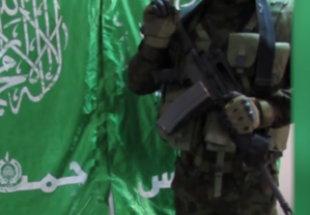
An article at the pro-Iran Al-Mayadeen claimed that the “Qassam Brigades, the military wing of Hamas, announced that its fighters in Jenin have developed an Explosively Formed Penetrator (EFP), or a self-forming warhead in Jenin.” The article was translated to English to reach a broader audience. The claim of new weapons should be viewed in the context of Israel’s operation in Jenin earlier this month and Iran’s attempts to increase threats in the West Bank.
Iran assembled a heavily-armed unit, the "Imam Hossein Division," comprising thousands of fighters from across the region capable of conducting attacks on U.S. troops in Syria as well as against neighboring Israel, according to a document shared with Newsweek by a member of an intelligence agency of a nation allied with the United States. Armed with precision-guided munitions and both attack and spy drones, along with a broad array of lighter weaponry, the division conducted an intensive barrage of drone and rocket attacks that hit the U.S. military garrison in southeastern Al-Tanf in October 2021, according to the intelligence official.
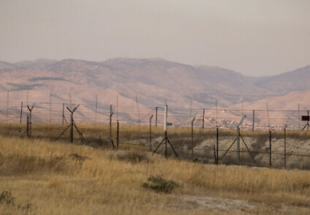
The Israel Defense Forces cleared for publication that security forces foiled an attempt to smuggle Iranian-made explosives into Israel from Jordan last month. The smuggling attempt was thwarted by troops of the IDF’s 417th Regional Brigade and members of the Matilan Border Police counterterrorism unit on July 24 in the Jordan Valley just south of the Sea of Galilee, near the Ashdot Ya’akov kibbutz. Initially, few details were permitted for publication by the Military Censor, including the type of contraband seized by the forces, and its origins. Later, the censor allowed for media to publish that troops had seized Iranian-made explosives.
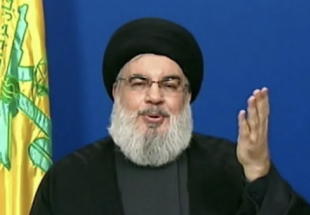
The head of Iran's Islamic Revolutionary Guards Corps' elite Quds Force, Esmail Qaani, arrived in Beirut ahead of a meeting with Hezbollah's Nasrallah, according to Walla News. Citing reports, the Israeli news outlet noted this comes after a visit to Syria. The Quds Force is responsible for clandestine missions outside of Iran, aiding proxies hostile to Israel in the region, most notably the Hezbollah terrorist organization. Iranian activity has also come under scrutiny in the West Bank by Jerusalem's defense establishment for fomenting terrorism against Israelis.
Israeli Prime Minister Benjamin Netanyahu said that a series of recent deadly attacks against Israelis has been funded and encouraged by Iran. "We are in the midst of a terror attack. This terror attack is encouraged, guided, and funded by Iran and its satellite states," Netanyahu said in broadcast remarks. He spoke in the occupied West Bank at a site where hours earlier an Israeli woman was shot dead by suspected Palestinian gunmen.
Iran-backed Houthi rebels killed 10 Yemen army soldiers from a southern separatist faction in a "surprise attack" after more than a year of relative calm, military sources said. Twelve others were wounded in the attack by the Houthis in the border area between the southern provinces of Lahj and Al-Bayda, the sources told AFP on the condition of anonymity. Four Houthi fighters were also killed, and several were wounded, the sources said. There was no immediate comment from the rebels. The attack targeted a site manned by the separatists, who aspire to create an independent state in southern Yemen such as the one that existed until 1990, the military sources said.
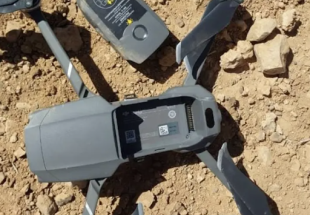
The Jordanian army said it downed a drone heading from Syria in the third such incident this month, linked to Iran-backed militias. Meanwhile, officials said an increase in weapons being smuggled across the border was raising concerns about a new Iranian-instigated threat beyond drugs. The army said in a statement that the drone was brought down in its territory but did not say what it was carrying. Officials have recently revealed weapons were being smuggled as well as narcotics by drone. Jordanian officials said the increasing use of drones carrying explosives was adding a new dimension in a relentless cross-border billion-dollar drug war the staunch U.S. ally has long blamed on Iranian-backed militias that hold sway in southern Syria.
Iran is pressing its proxy group, Hezbollah, to attack Israel along its northern border, Israeli Defense Minister Yoav Gallant told the United Nations Secretary-General as he urged him to ensure that the organization’s peacekeeping force is empowered to monitor the situation. "The potential for escalation on the northern border is increasing following a blatant violation of Lebanon's sovereignty by Hezbollah’s military build-up,” Gallant said. “The U.N. must urgently intervene to reduce tensions by strengthening the freedom of movement of the U.N. Interim Force in Lebanon in the region, and implementing its mandate on the northern border,” Gallant told Guterres.
The European Union's top diplomat confirmed that Johan Floderus, a Swedish diplomat working for the EU, has been held captive in Iran for more than 500 days. Arriving at a meeting on development in the Spanish city of Cadiz, EU foreign policy chief Joseph Borrell told reporters that Brussels was pushing "relentlessly" for the 33-year-old's release. Sweden partially confirmed a New York Times report on the detention, announcing that a Swedish citizen in his thirties had been held in Iran since April 2022. But Borrell went further, confirming the prisoner's name and that he works for the EU diplomatic corps.
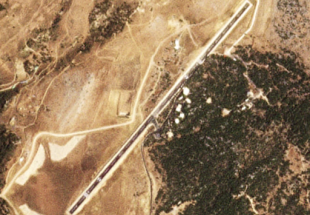
Israel accused Iran of building an airport in southern Lebanon to be used as a launchpad for attacks against Israelis across the border, signaling a possible escalation in tensions between the regional foes. Speaking at a high-profile security conference hosted by Reichman University near Tel Aviv, Defense Minister Yoav Gallant claimed Iran has been building a runway that slices through forested mountains just 20 kilometers (12 miles) from Israel’s northern border. Gallant displayed satellite photographs that he said showed the site, where the Iranian national flag and the flag of Lebanon’s militant Hezbollah group could be seen. Gallant alleged that Iran “is planning to act against the citizens of Israel,” using the runway as a base.
Iran and its agents appear to be orchestrating a Europe-wide campaign of harassment, surveillance, kidnap plots, and death threats targeting political activists who are protesting against the regime. The Guardian has spoken to 15 Iranian campaigners who have been targeted in similar acts of repression across the UK, France, Germany, Spain, Switzerland and Sweden. In most of the cases, the activists have been warned by western police or security agencies that Iran is behind credible threats to their life in retribution for their activism on European soil. The attacks include hacking, cyber-attacks, and online harassment that can include thousands of death threats sent over a week, and real-world threats.
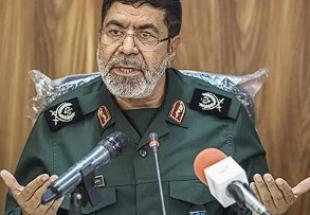
The spokesperson for Iran's Revolutionary Guards threatened a vigorous response to counter the “hostile activities of the enemy in the media sphere.” Ramezan Sharif called for launching an offensive against anti-regime media as the revolutionary tide continues to deepen and threaten the Islamic Republic's stability. Iranian regime authorities, including commanders from the Revolutionary Guard, have frequently issued threats against media outlets operating abroad, such as Iran International. During his address, Sharif alleged that media outlets globally are under the control of individuals who shape the narrative for their respective organizations while pursuing their own vested interests.
Israel arrested five Palestinians in a plot allegedly hatched in Iran to target and spy on senior Israeli politicians, including Israel’s far-right national security minister, the country’s internal security agency. The Shin Bet security service alleged that an Iranian security official living in neighboring Jordan had recruited three Palestinian men in the Israeli-occupied West Bank and another two Palestinian citizens of Israel to gather intelligence about several high-profile Israeli politicians. The targets included National Security Minister Itamar Ben-Gvir—a firebrand Israeli settler leader who oversees the country’s police force in Prime Minister Benjamin Netanyahu’s ultranationalist government—as well as Yehuda Glick, an American-born far-right Israeli activist and former member of parliament.